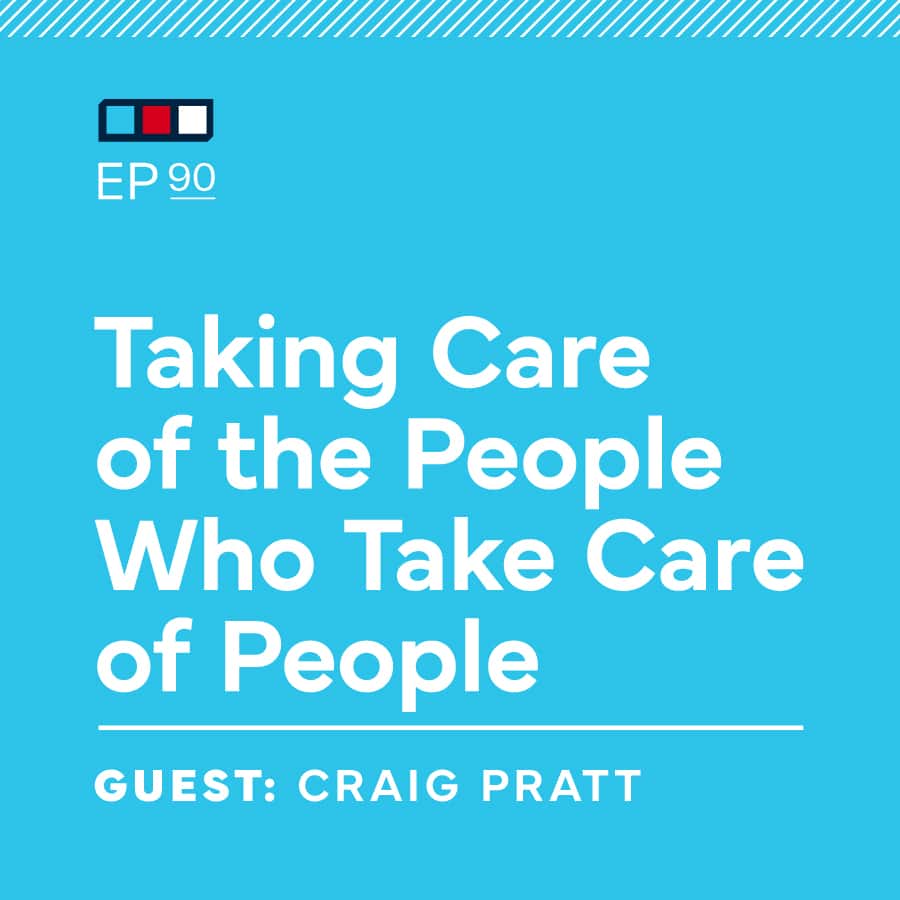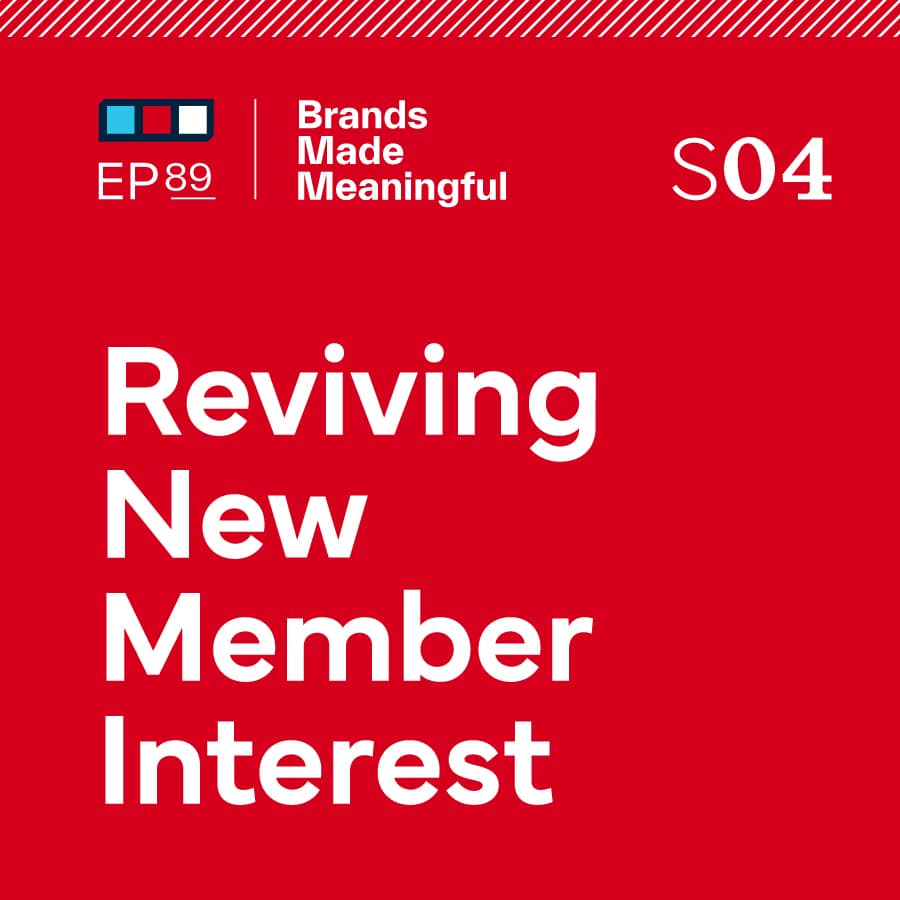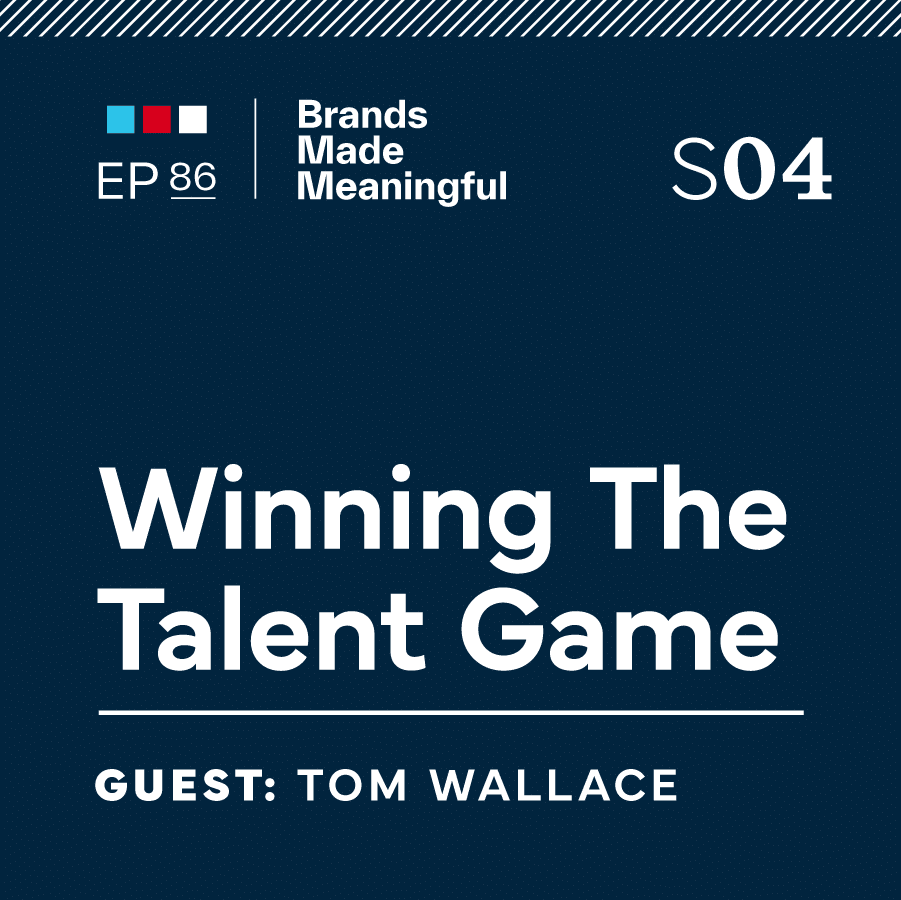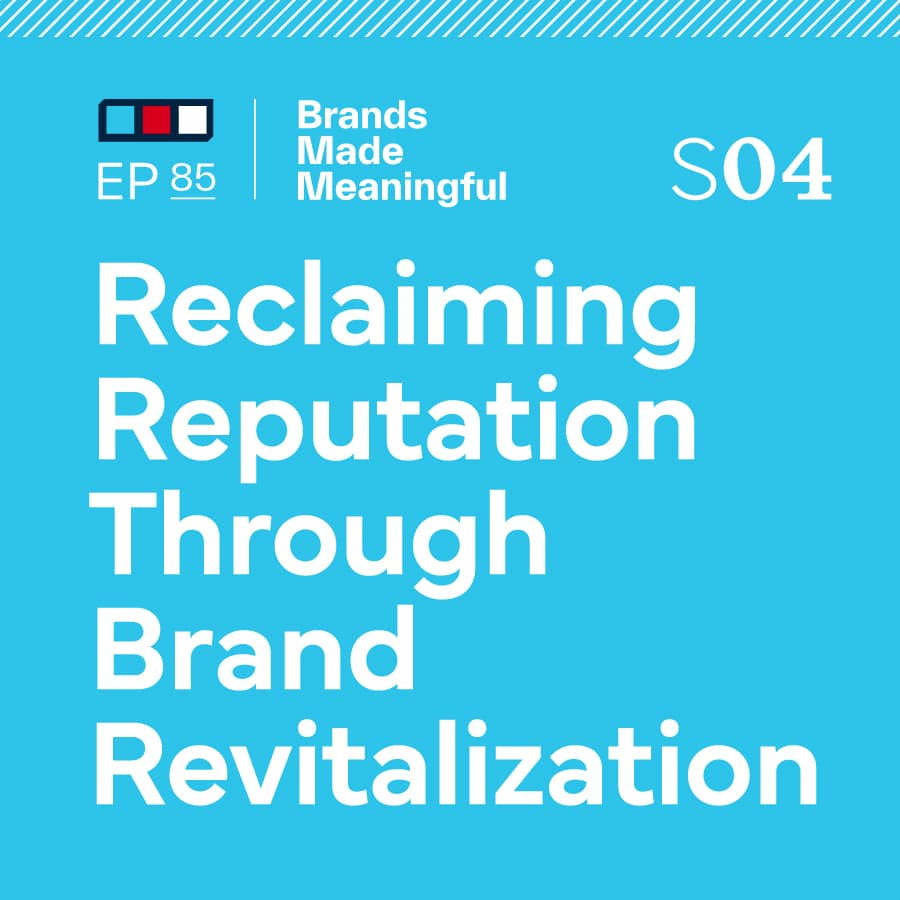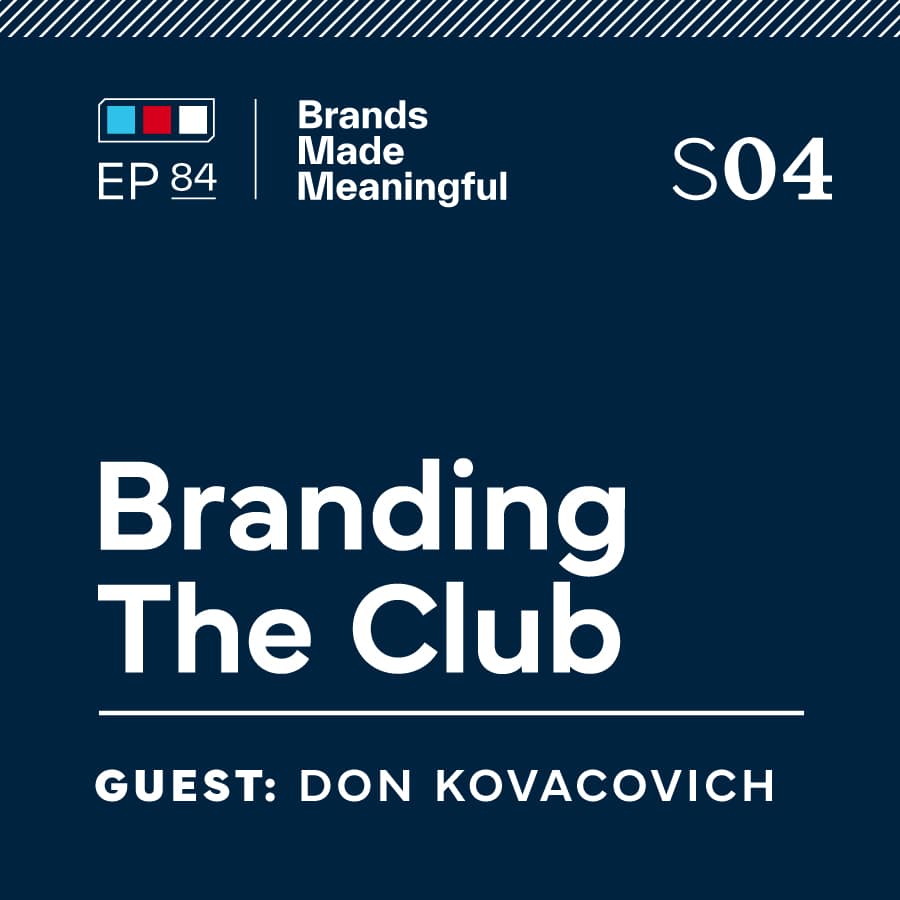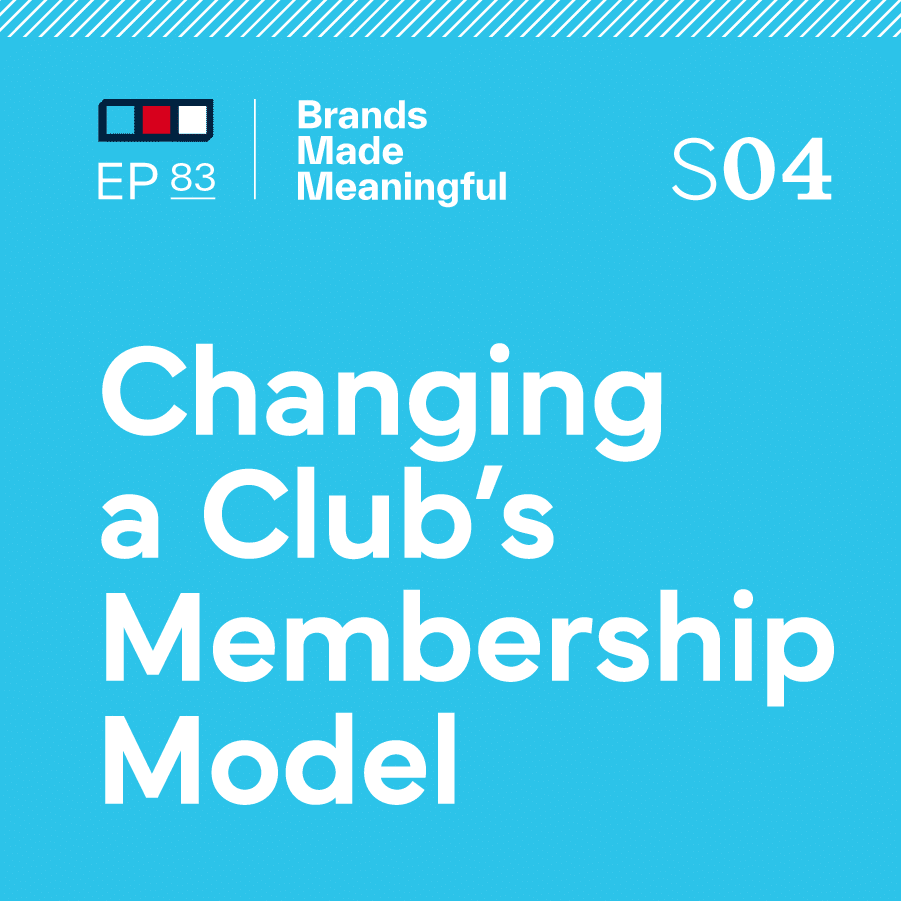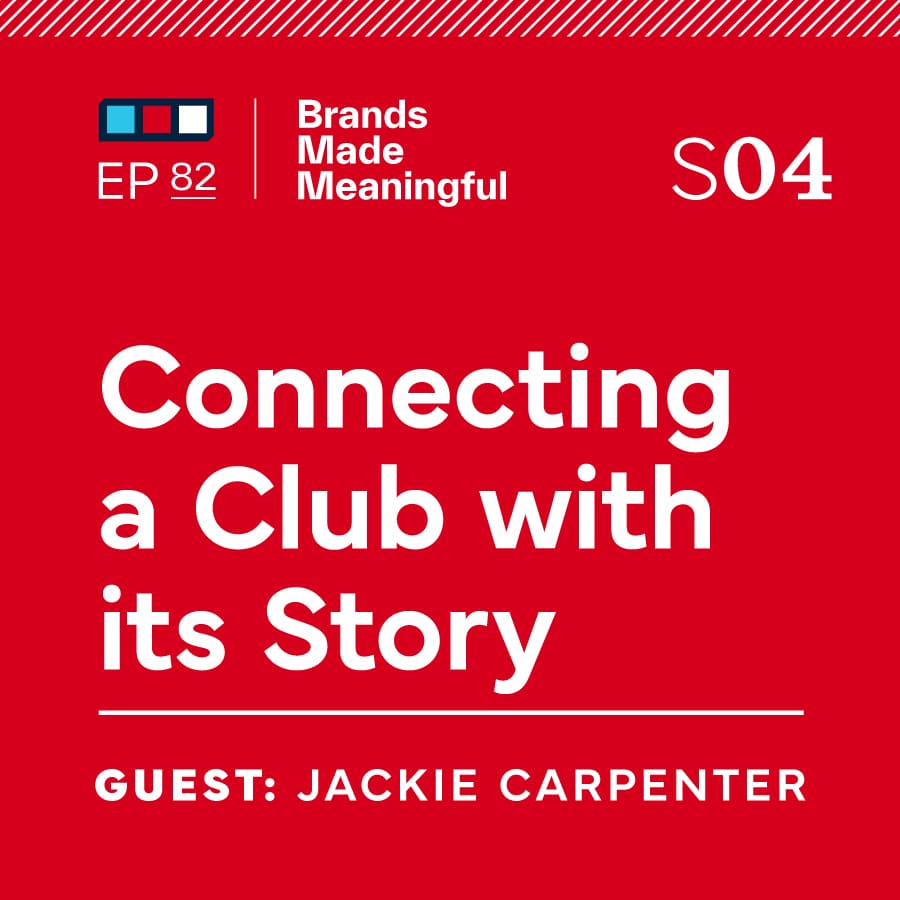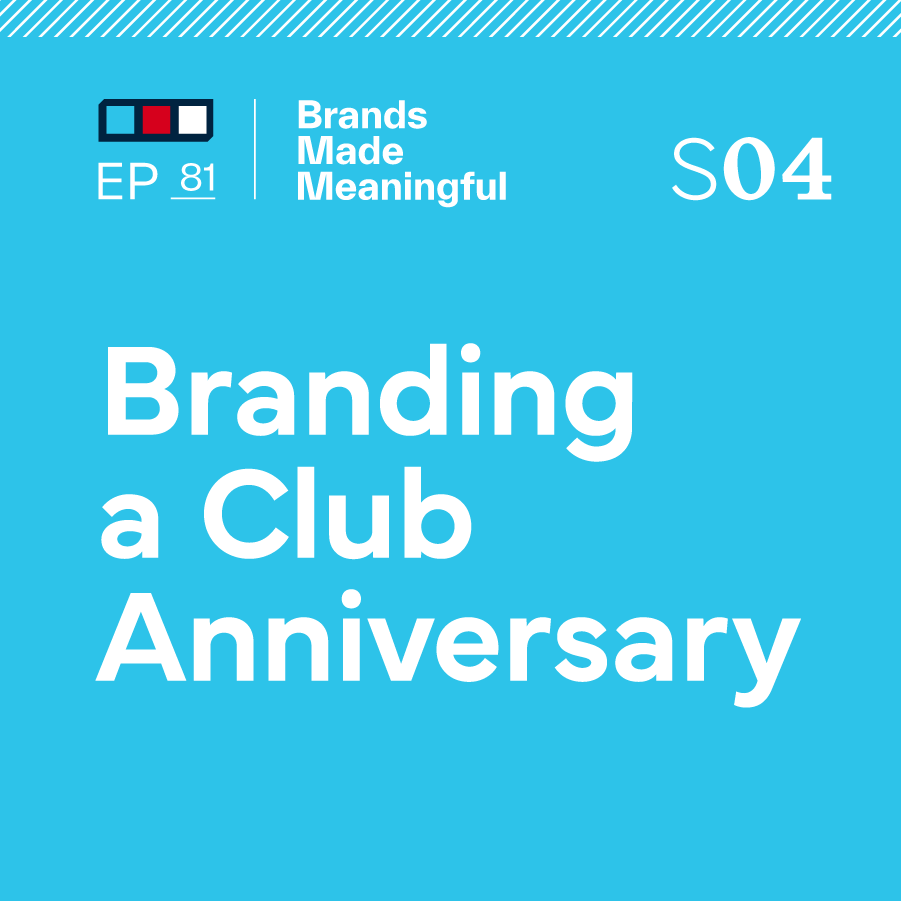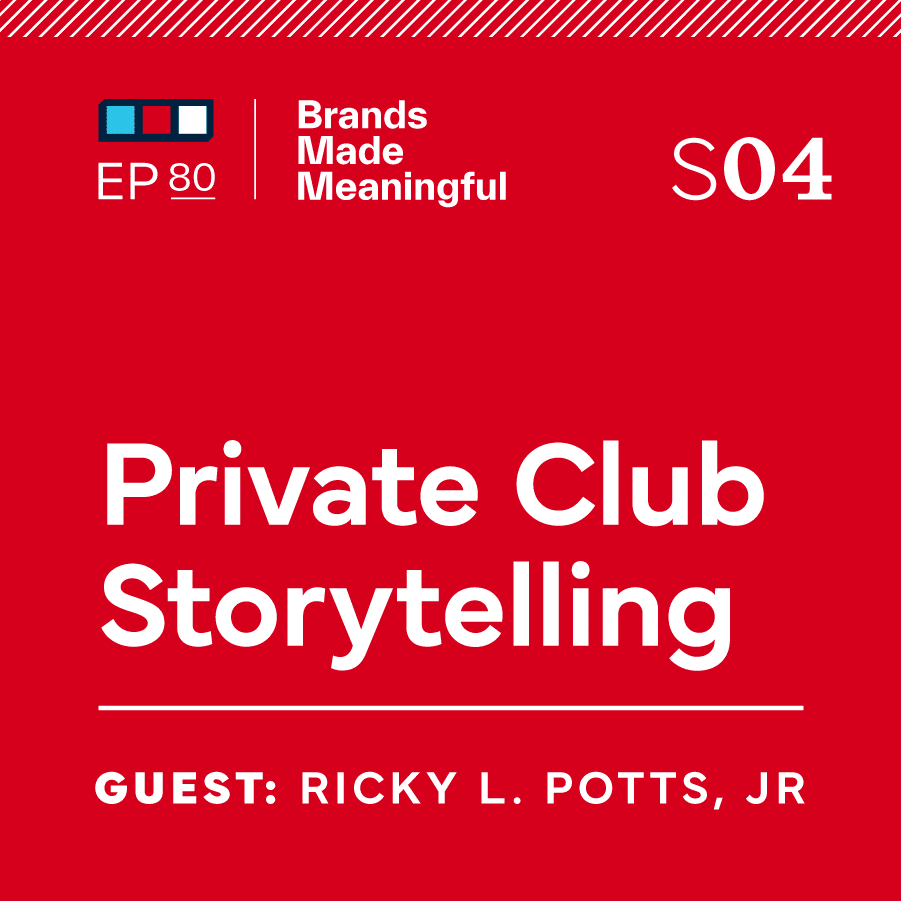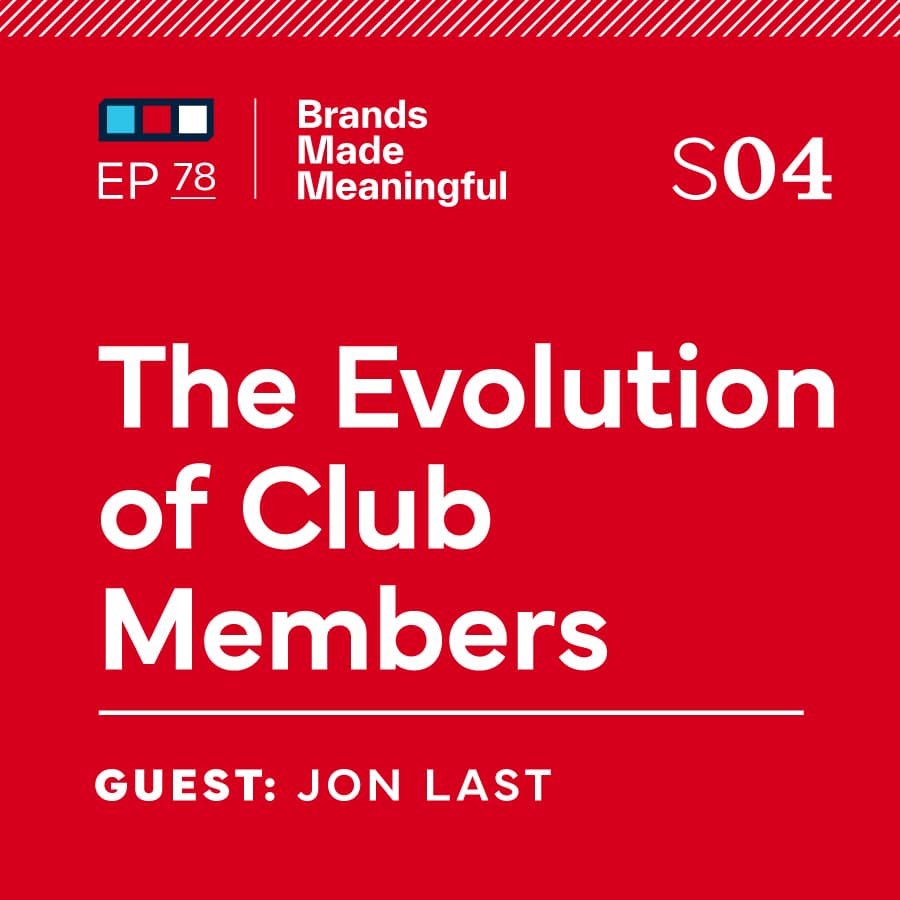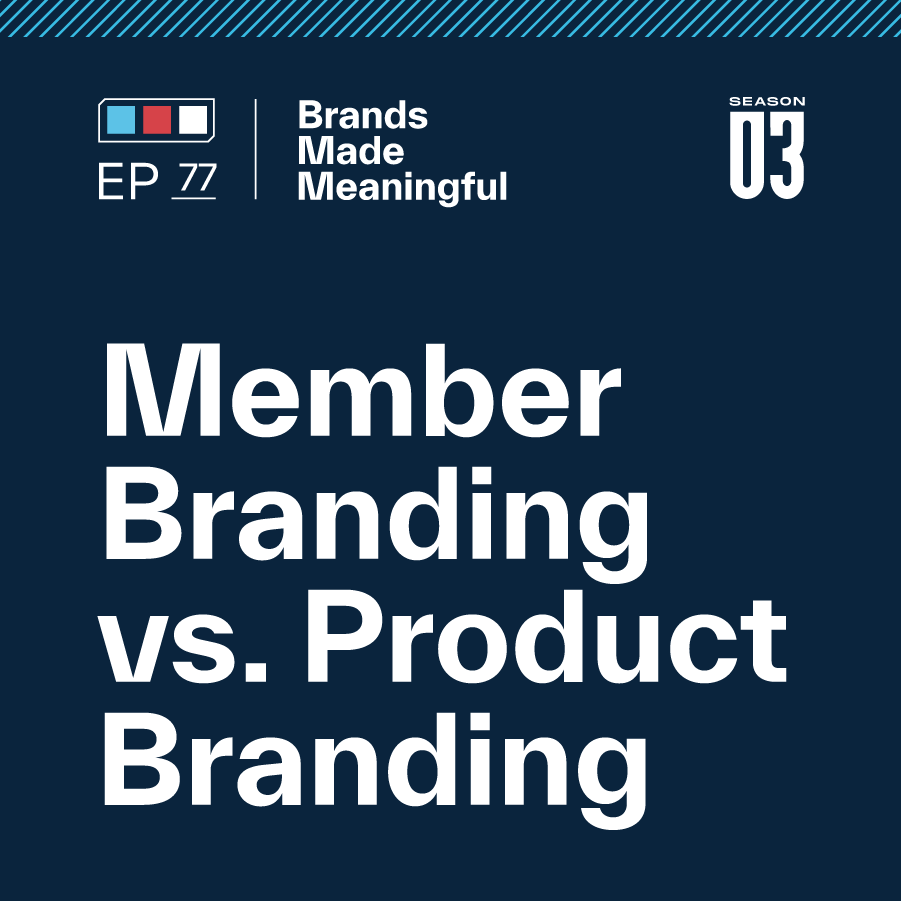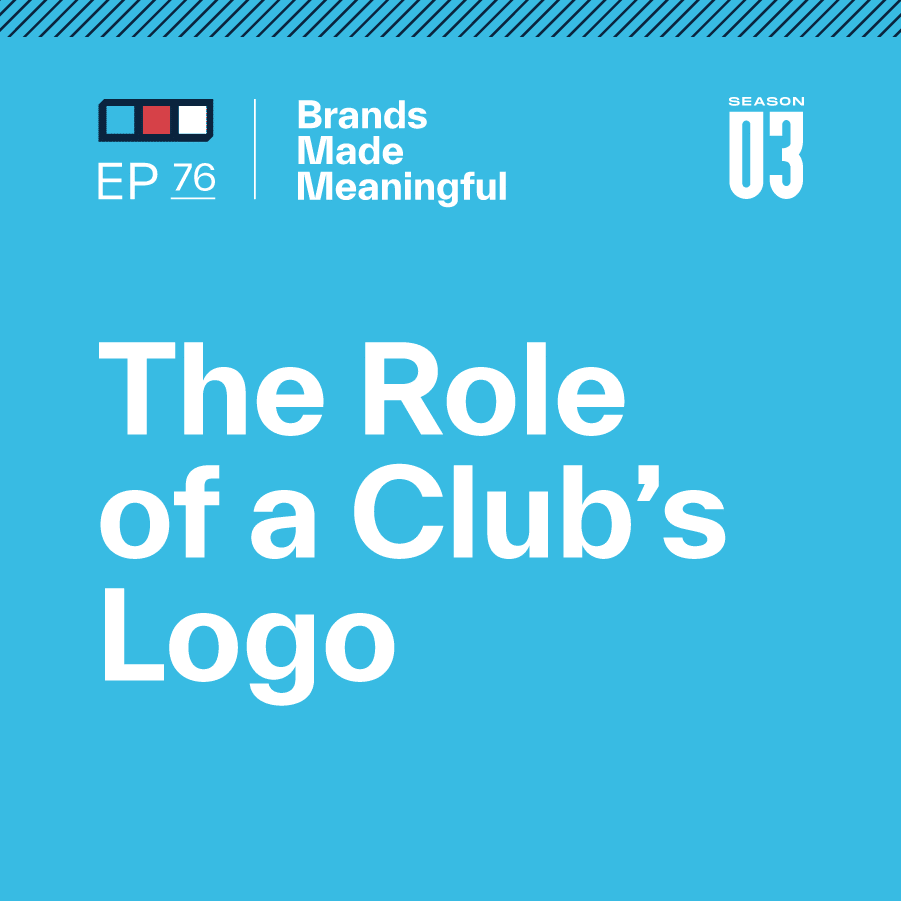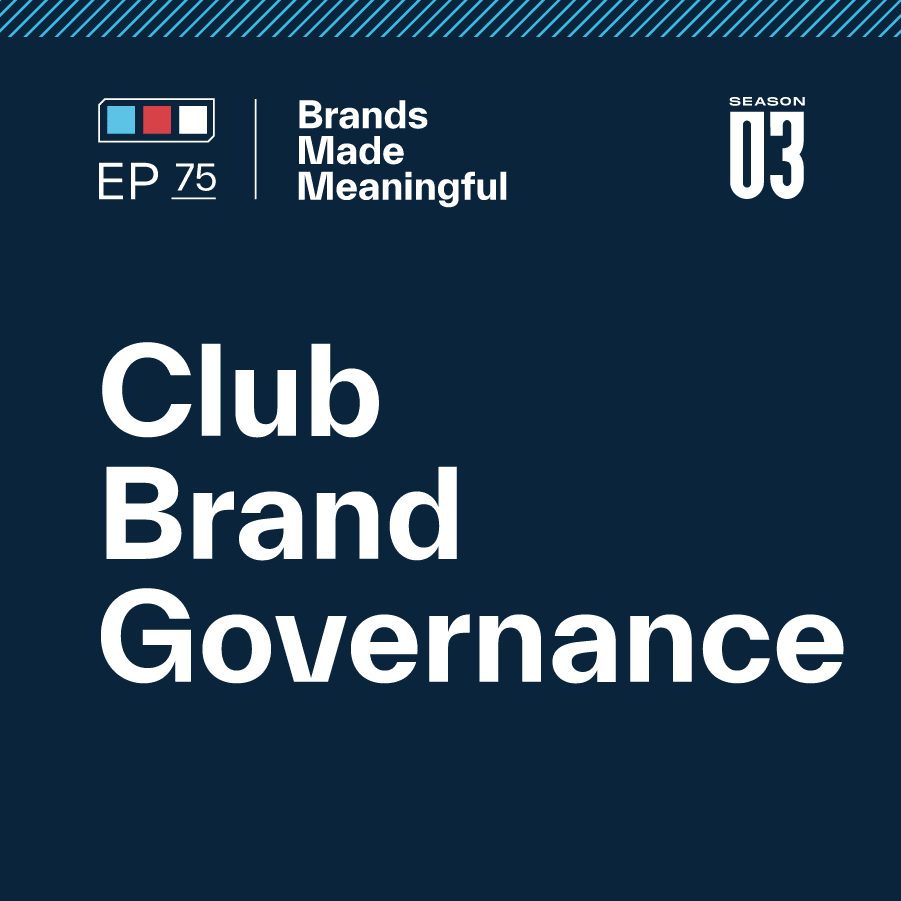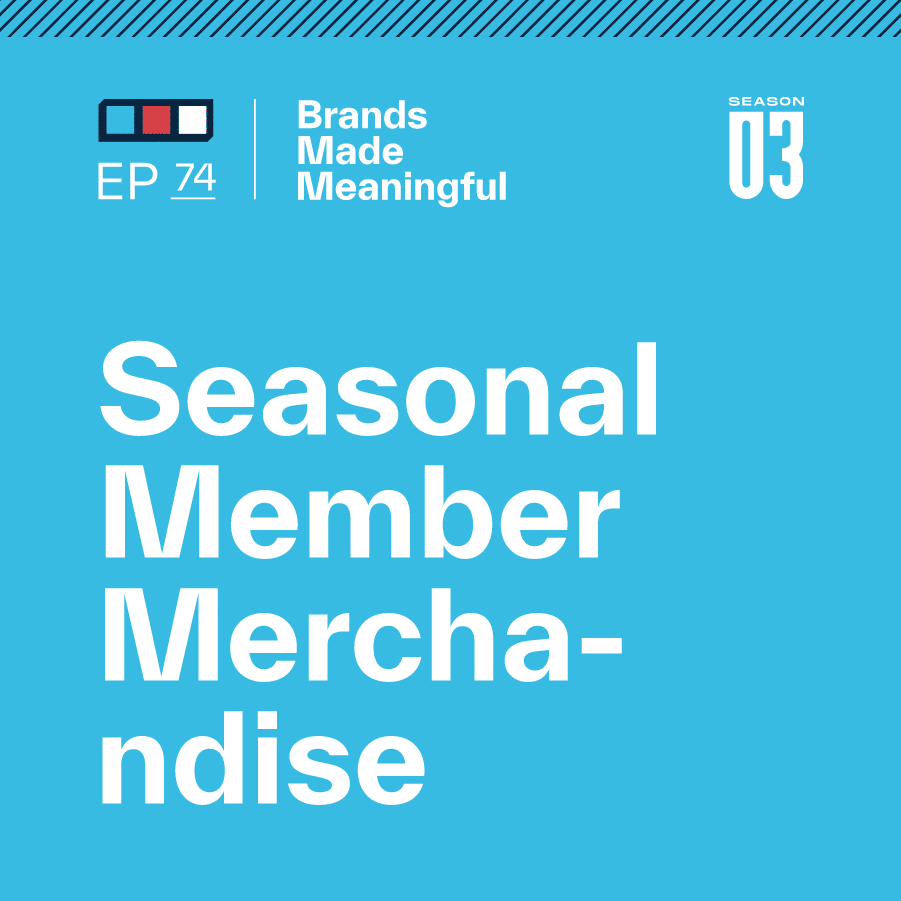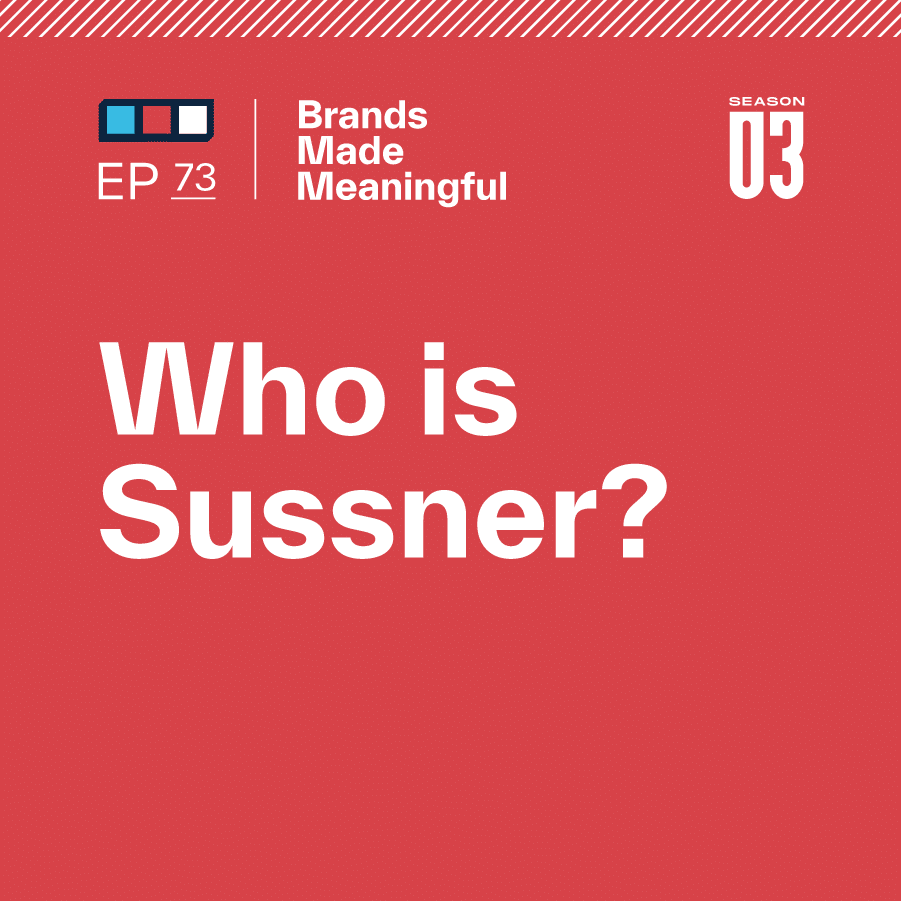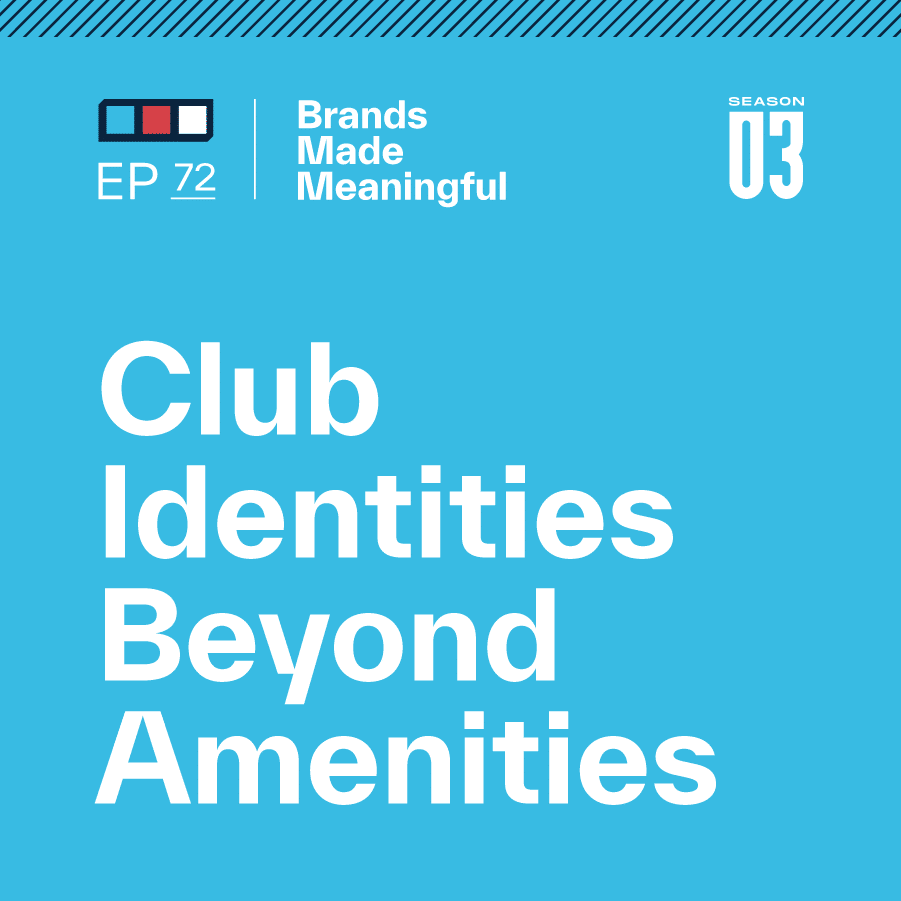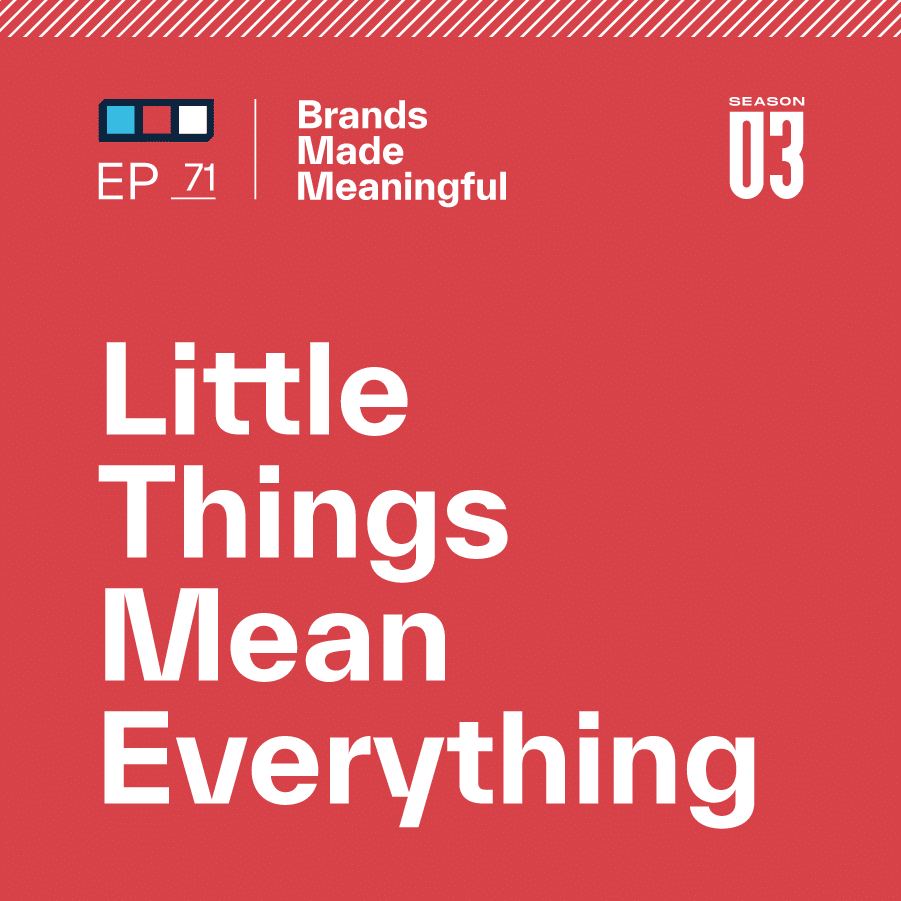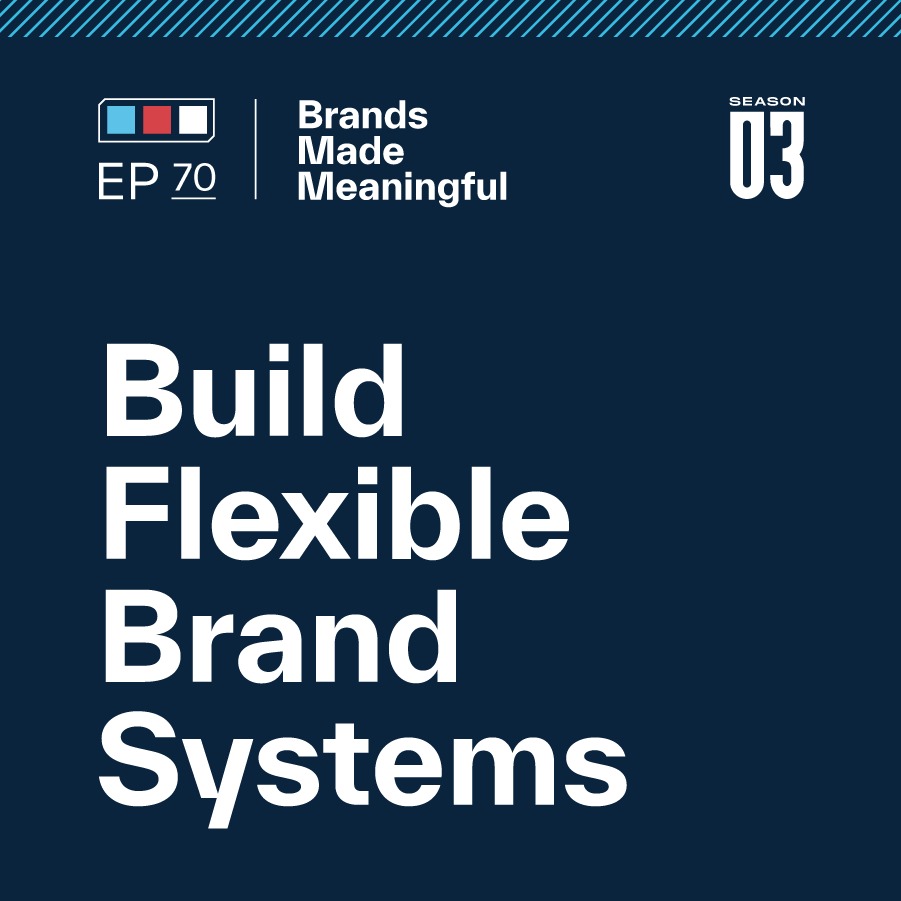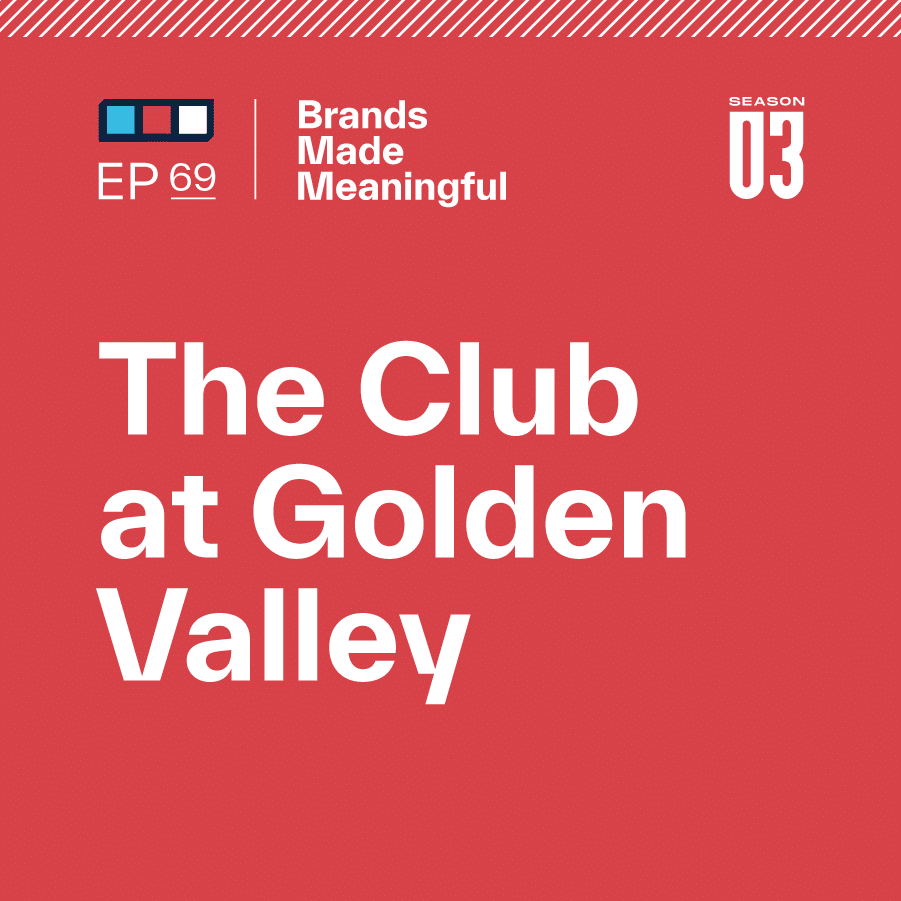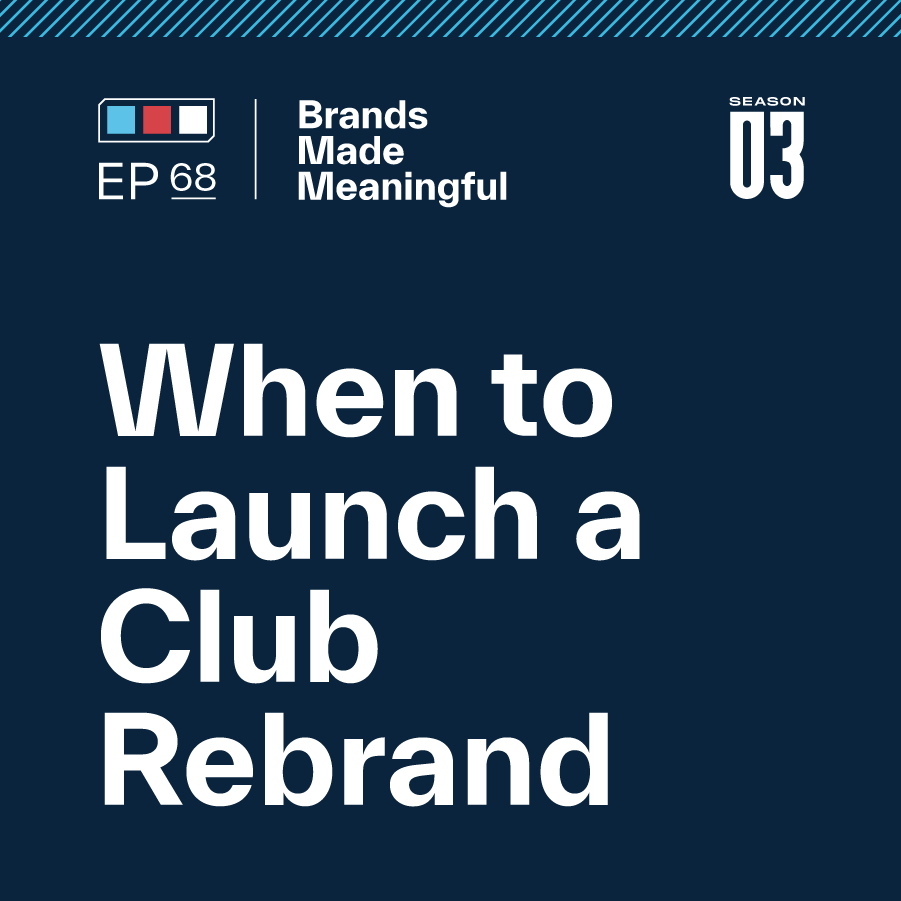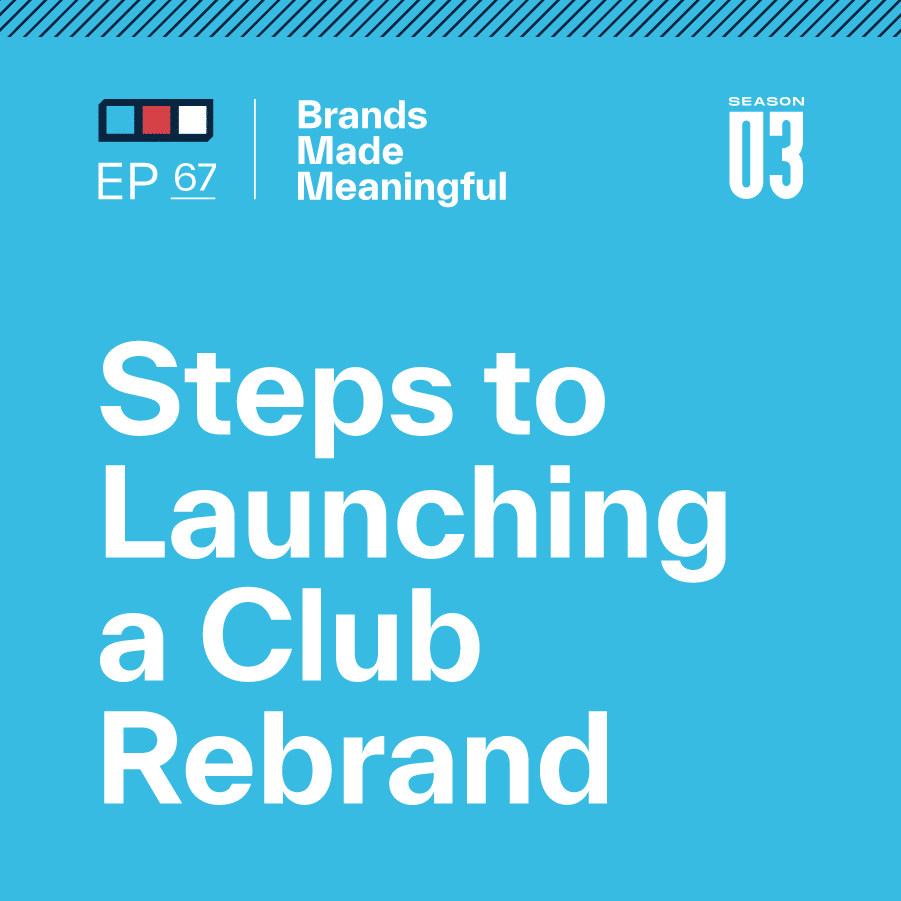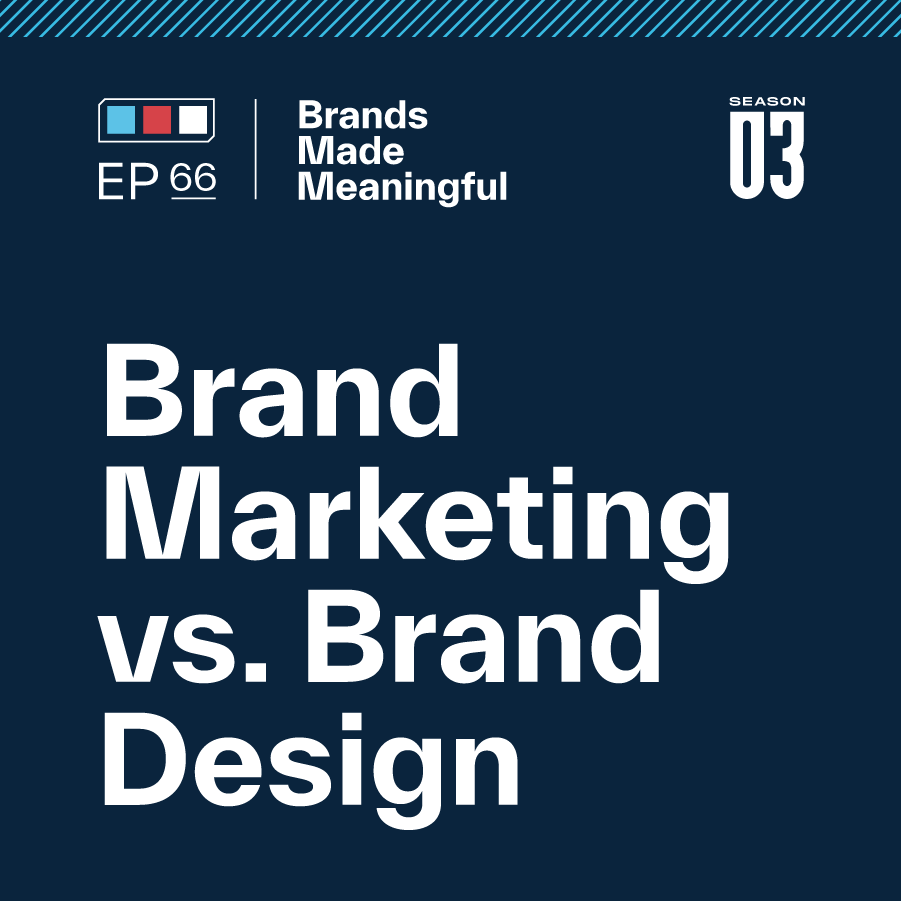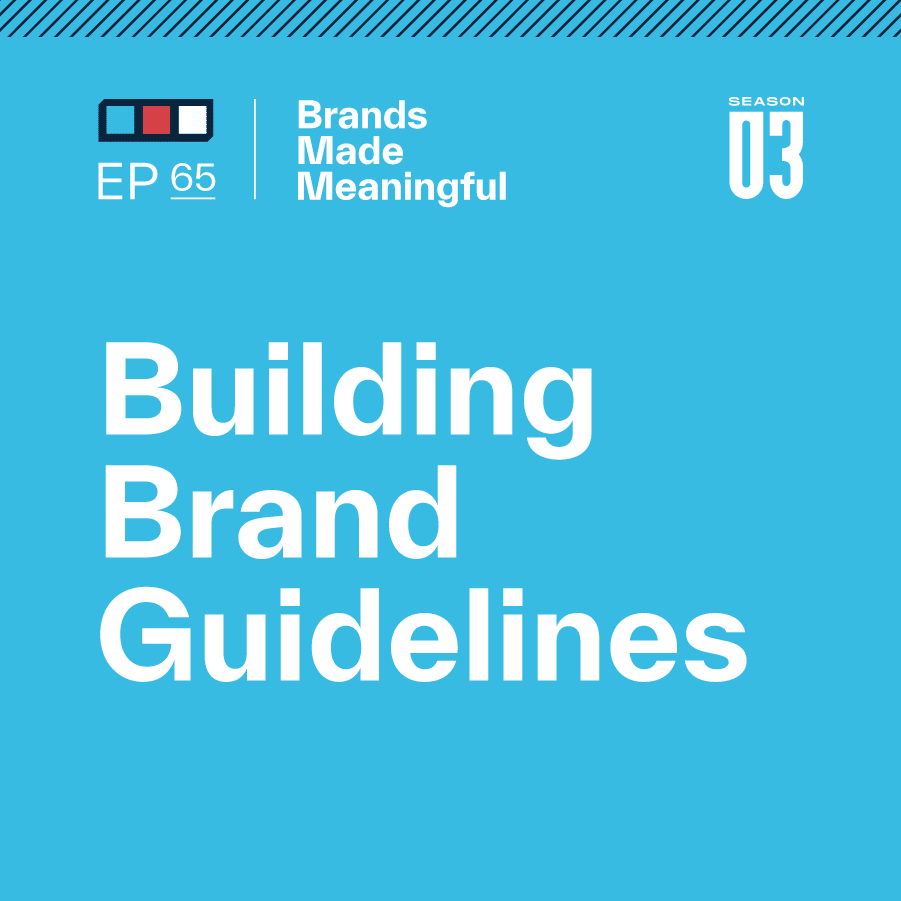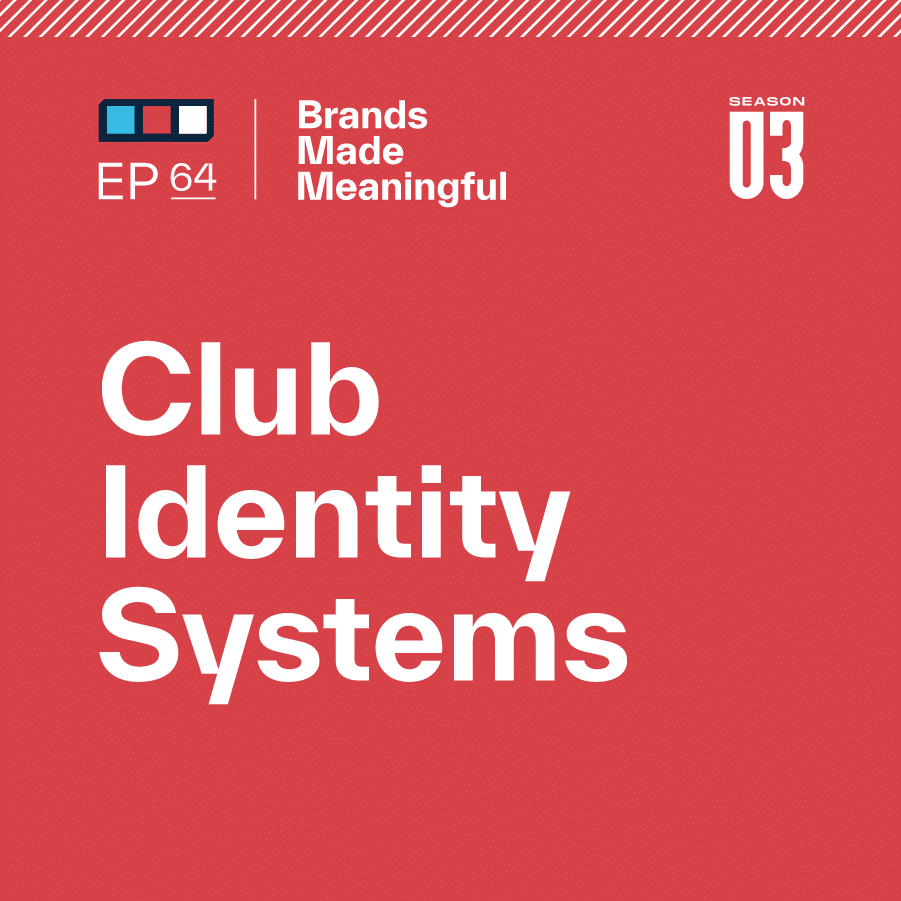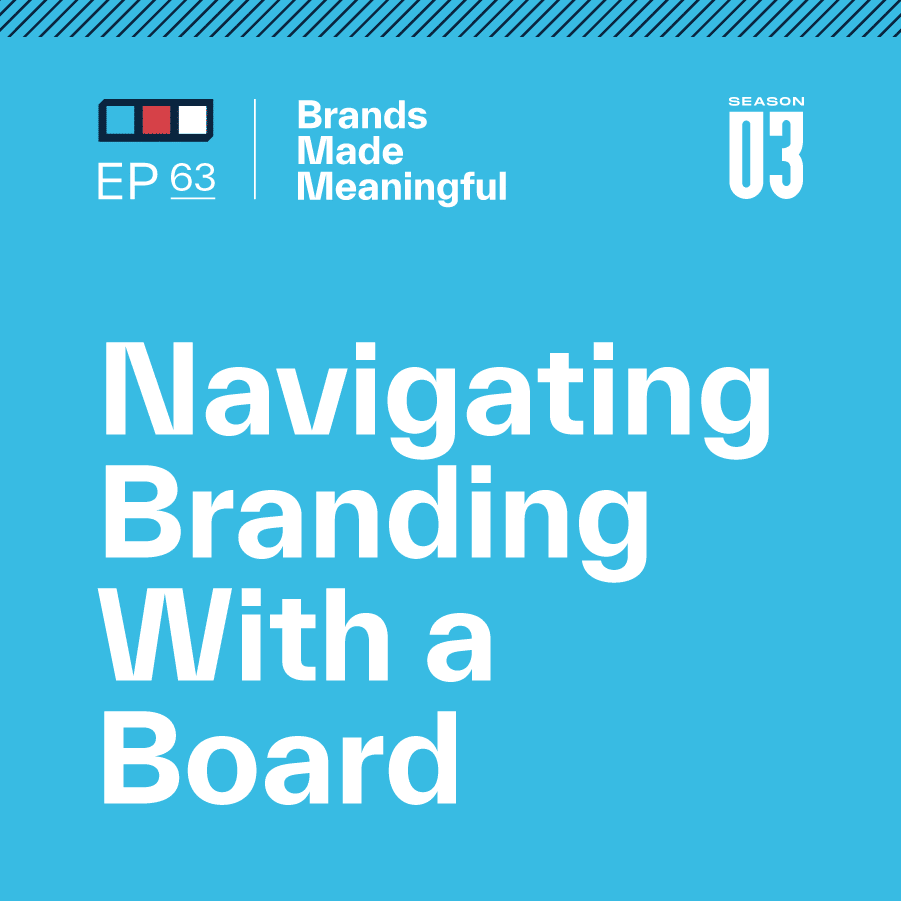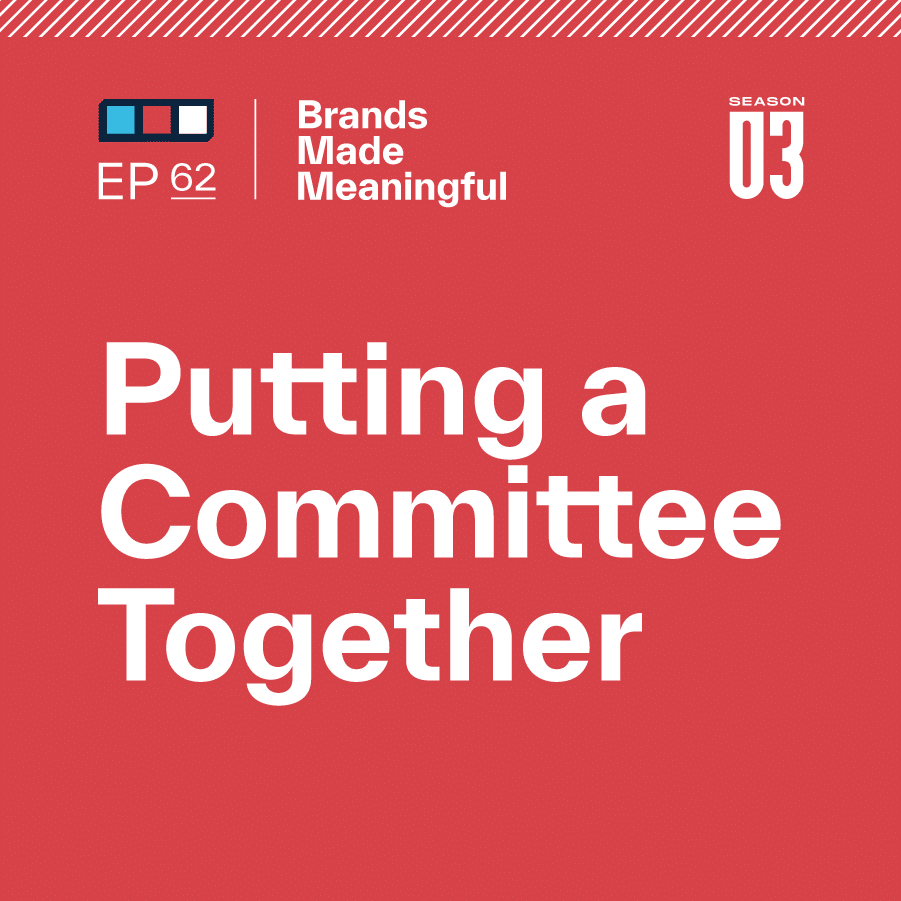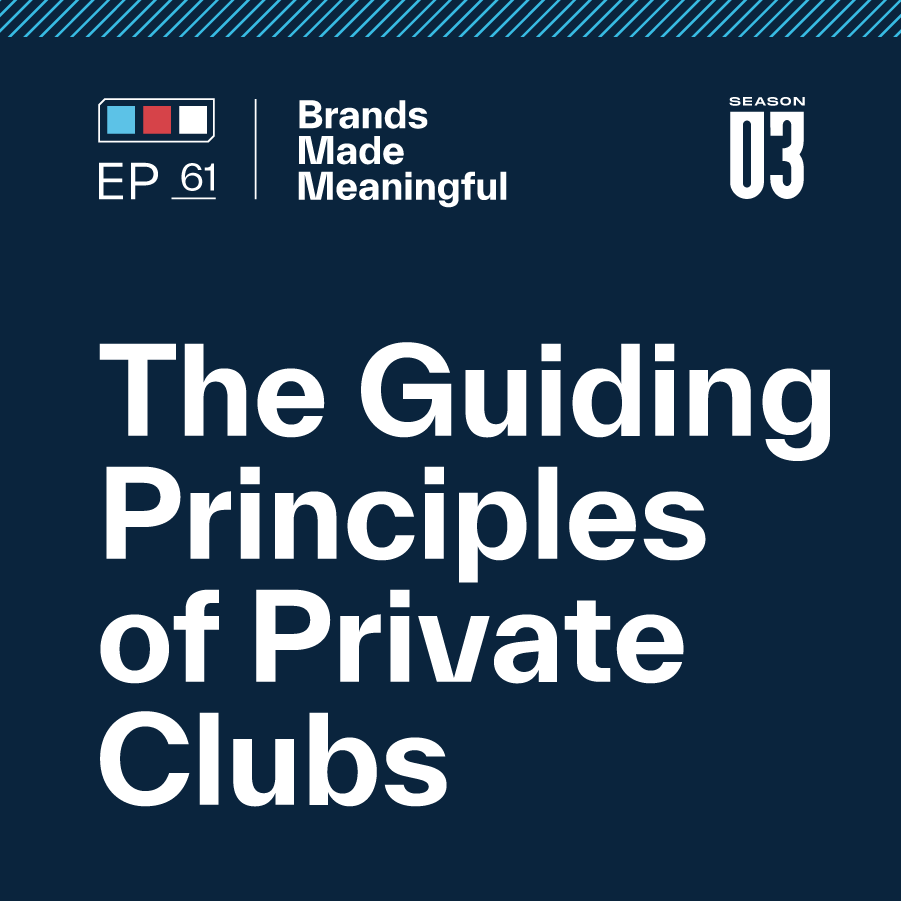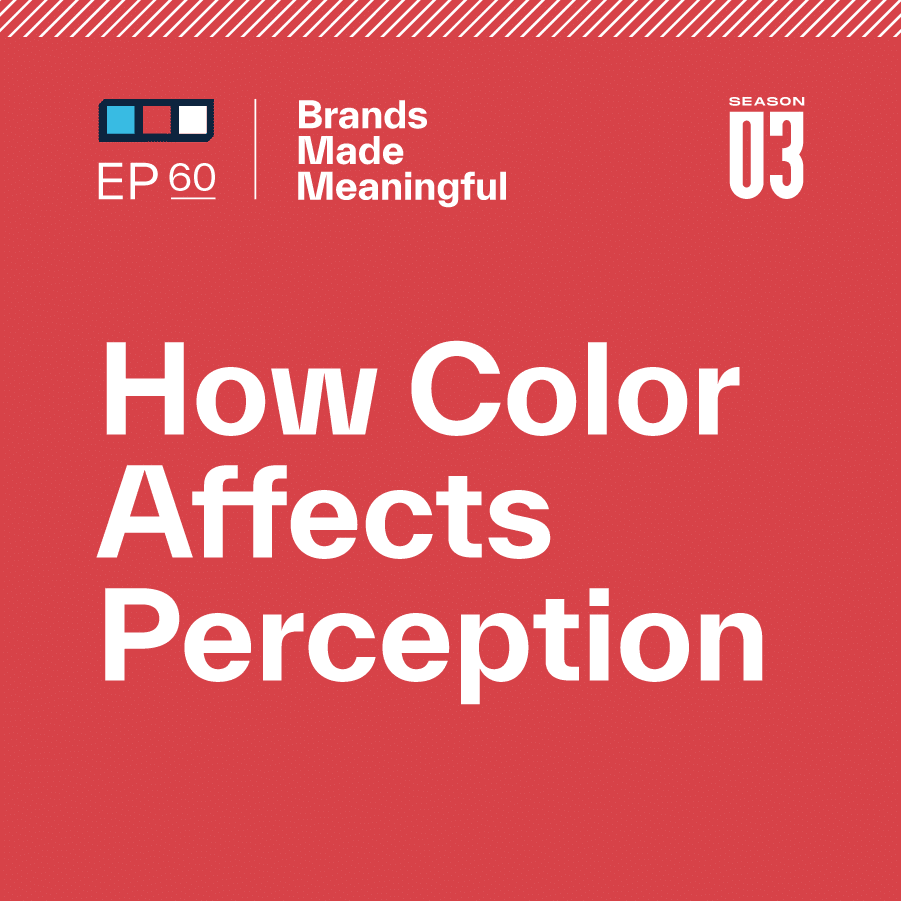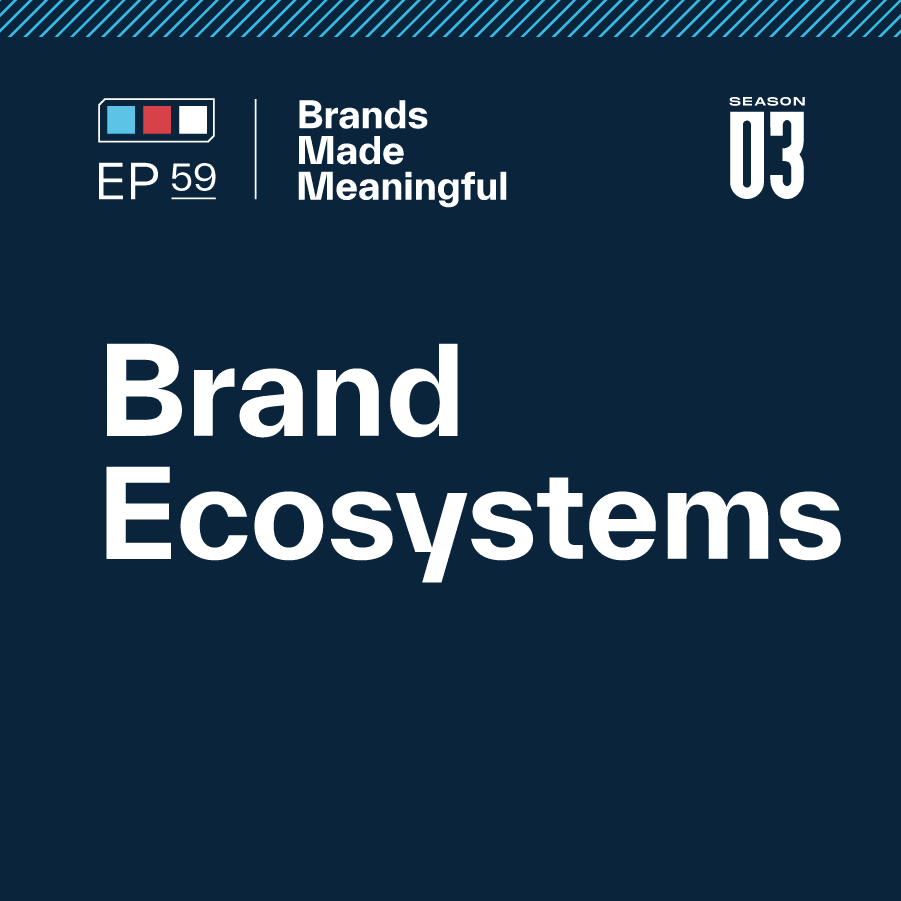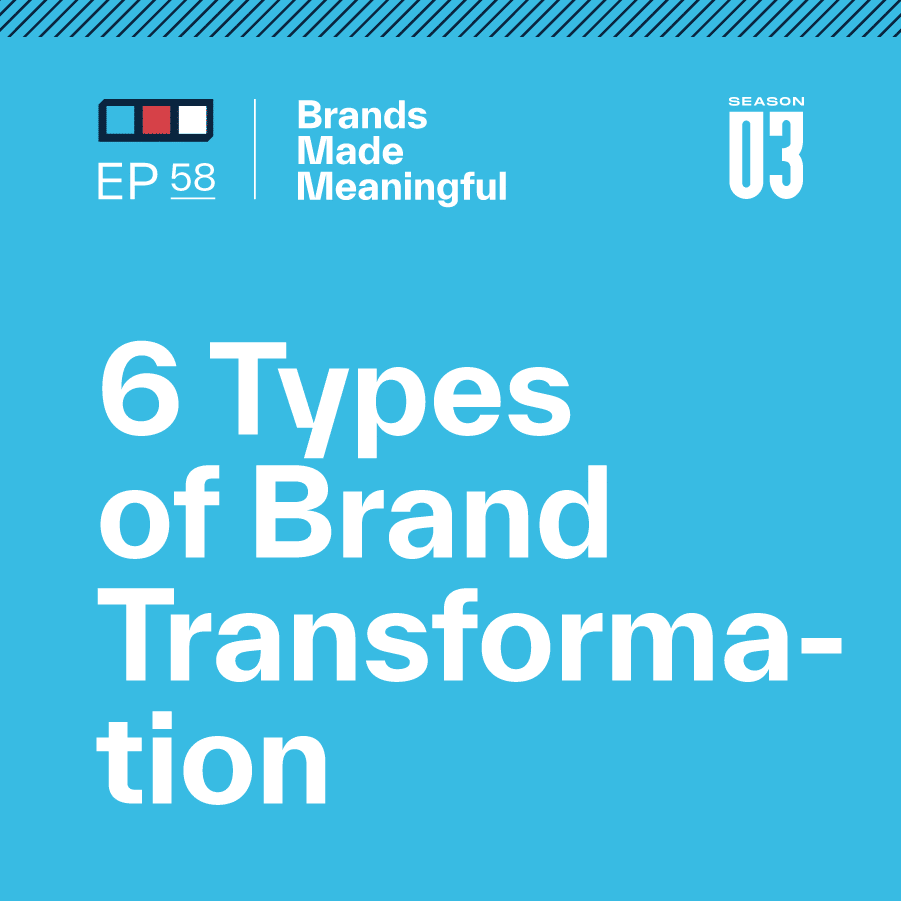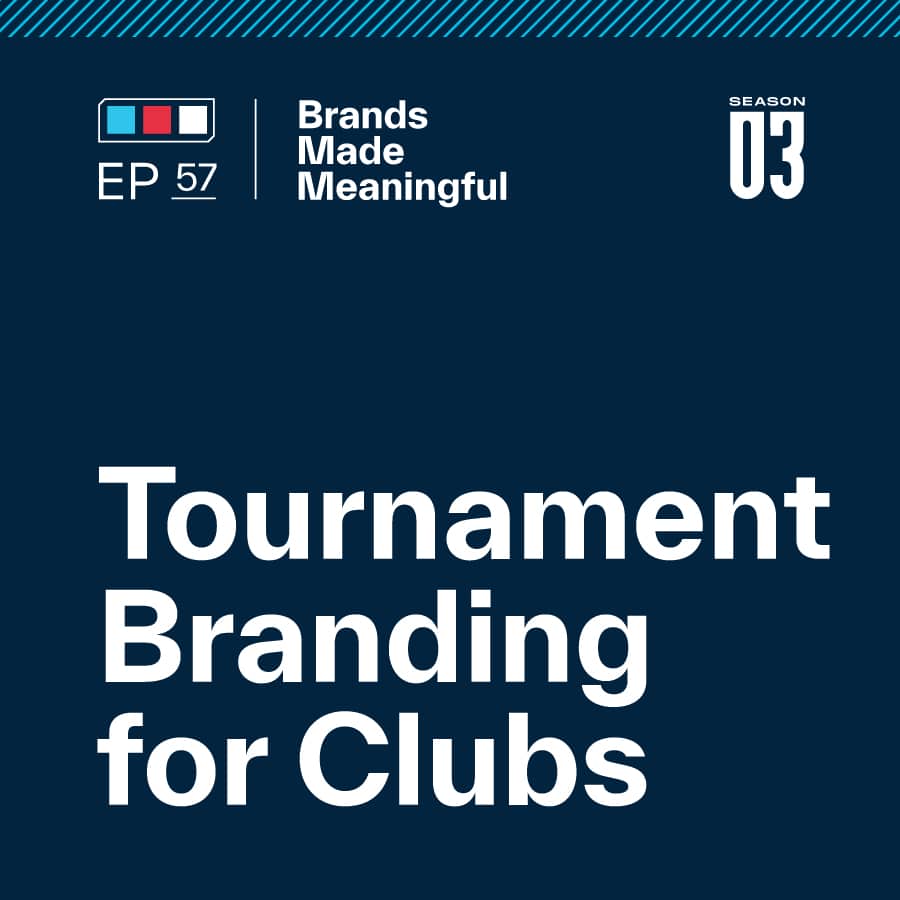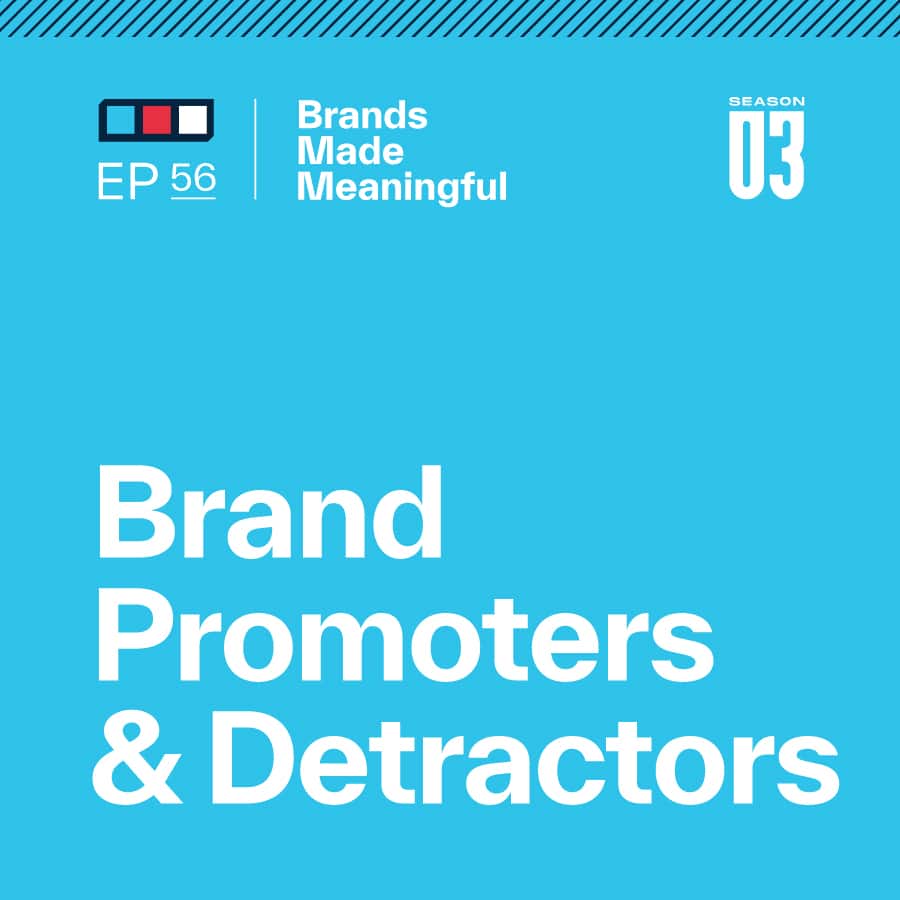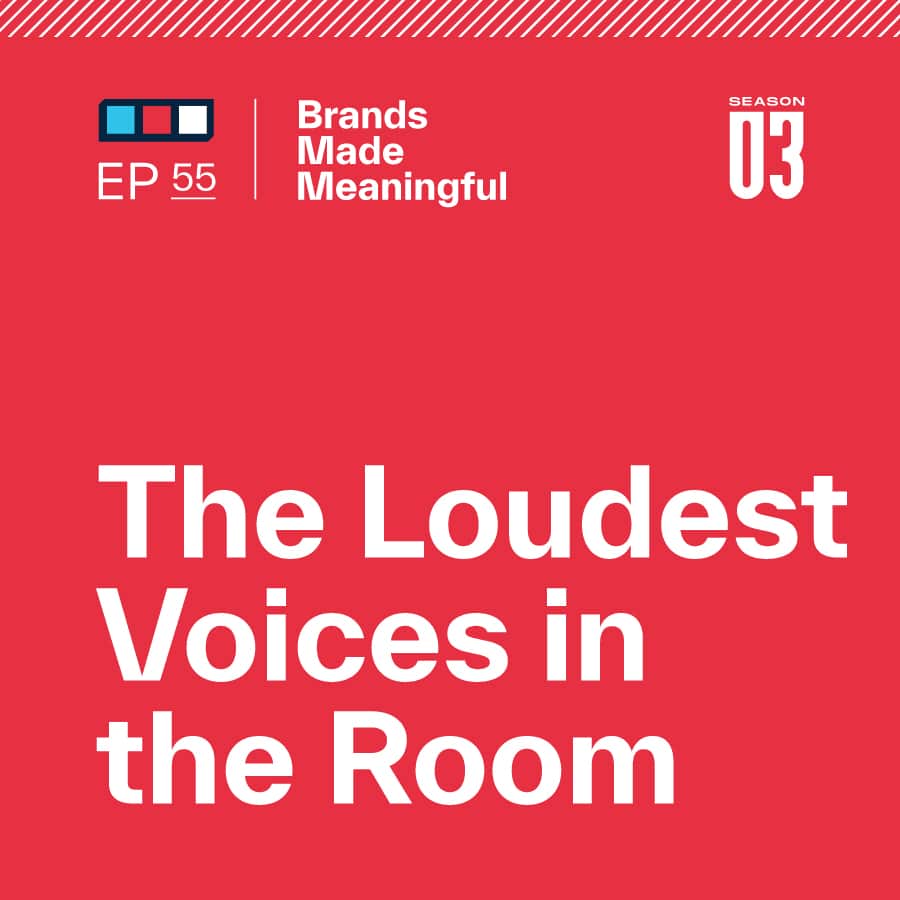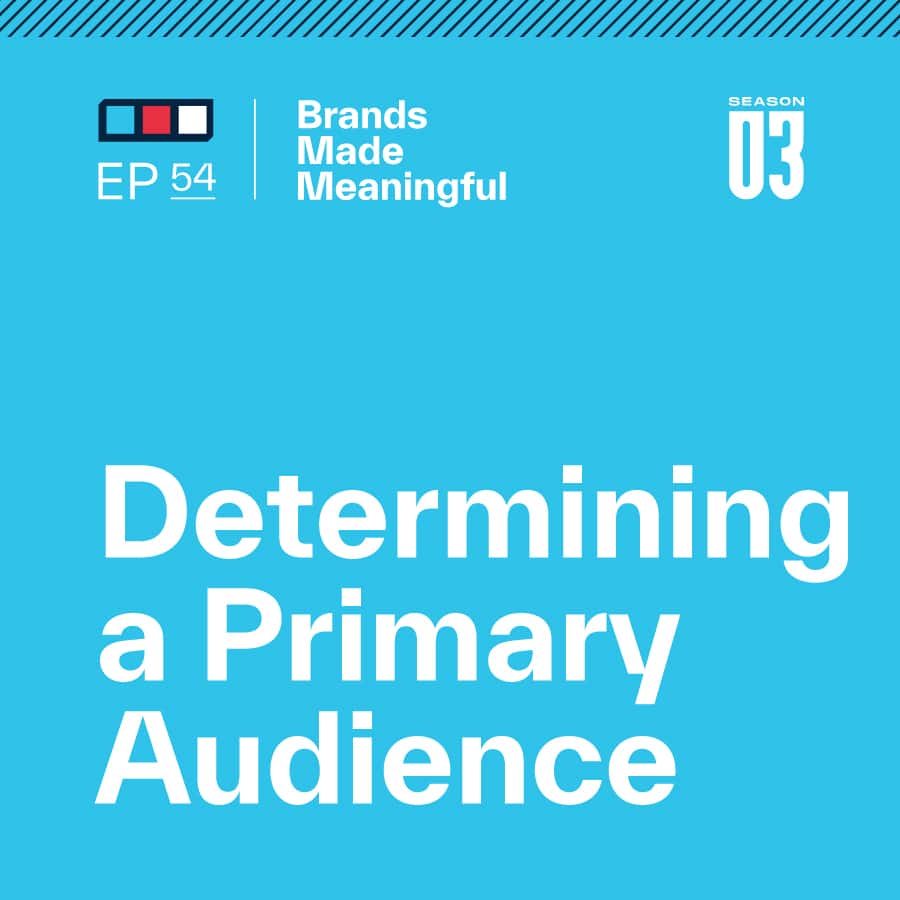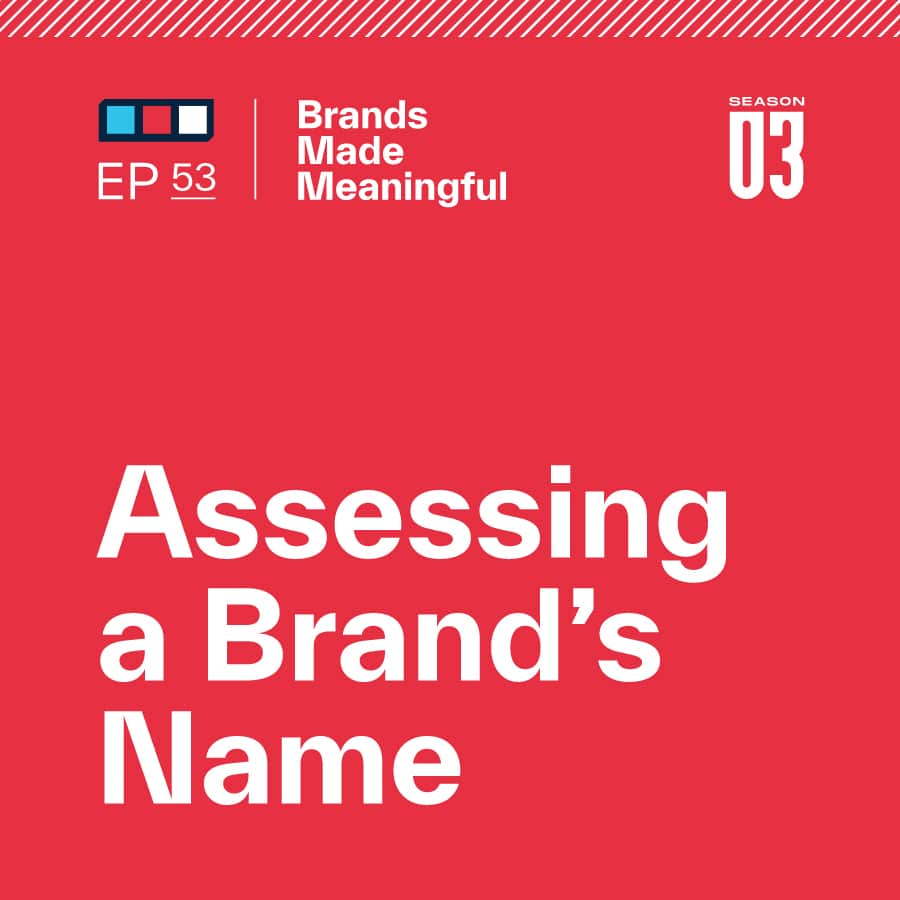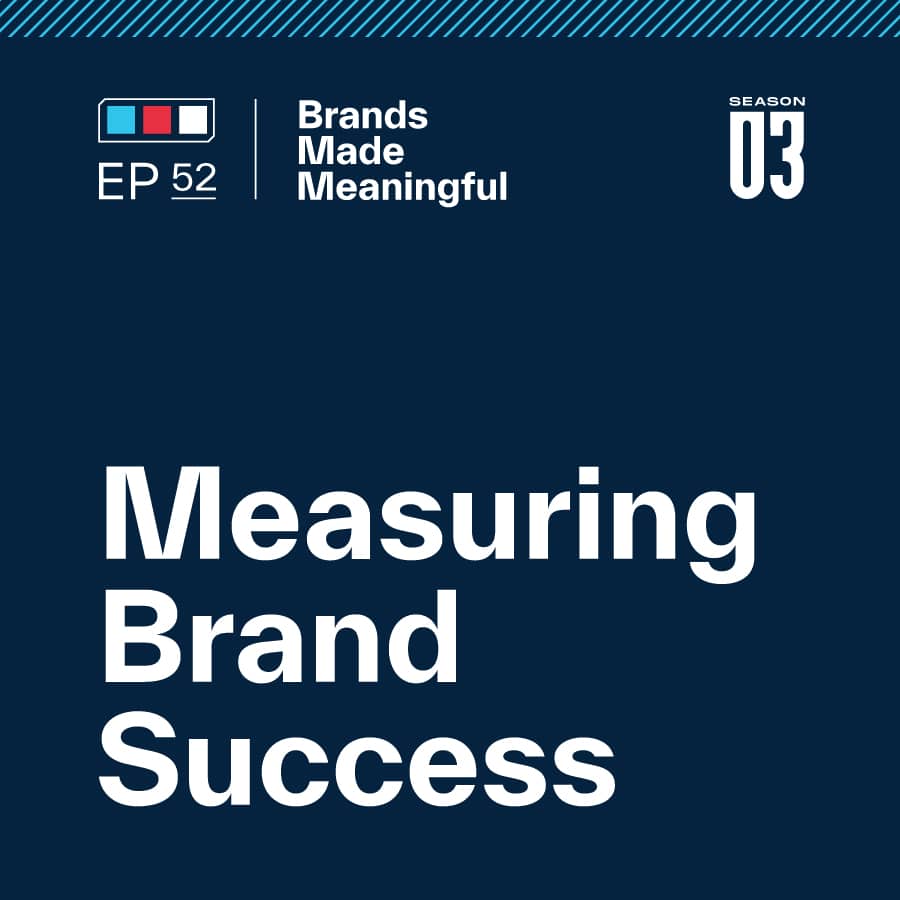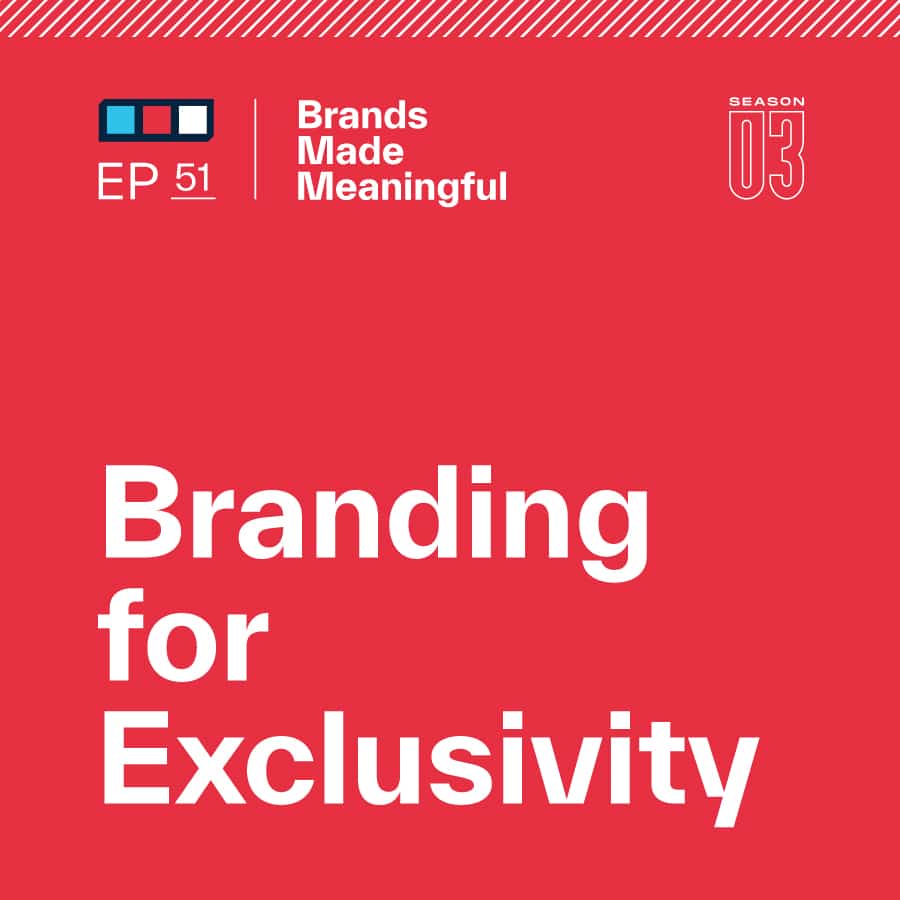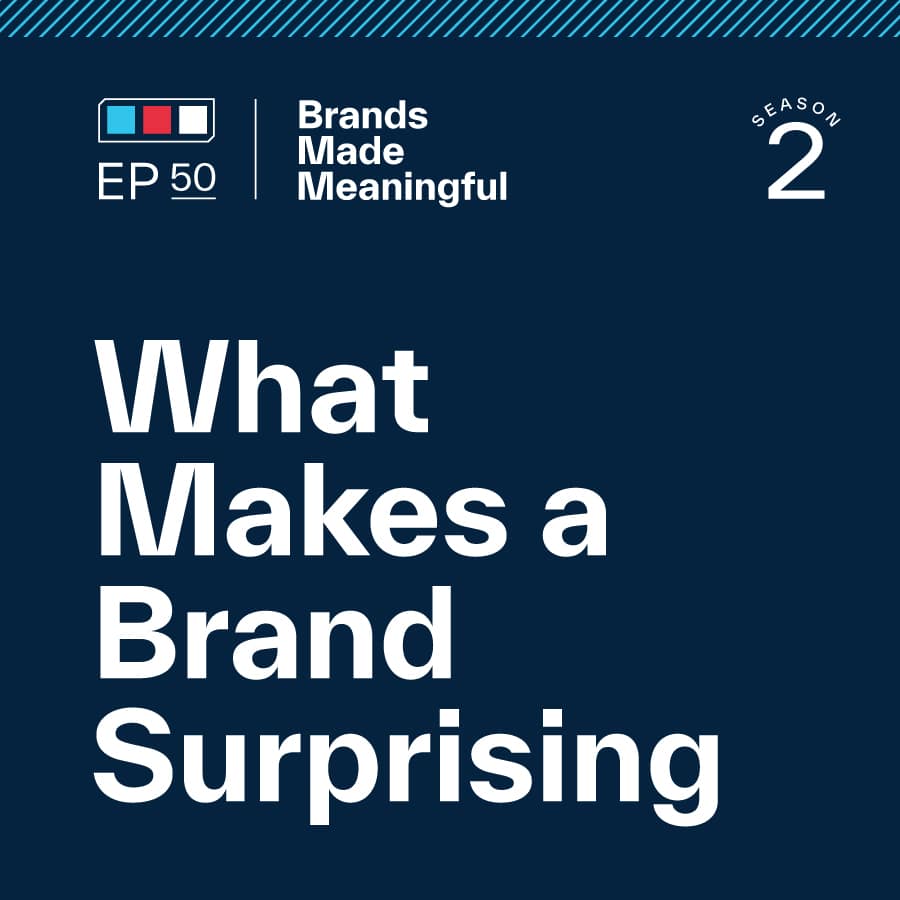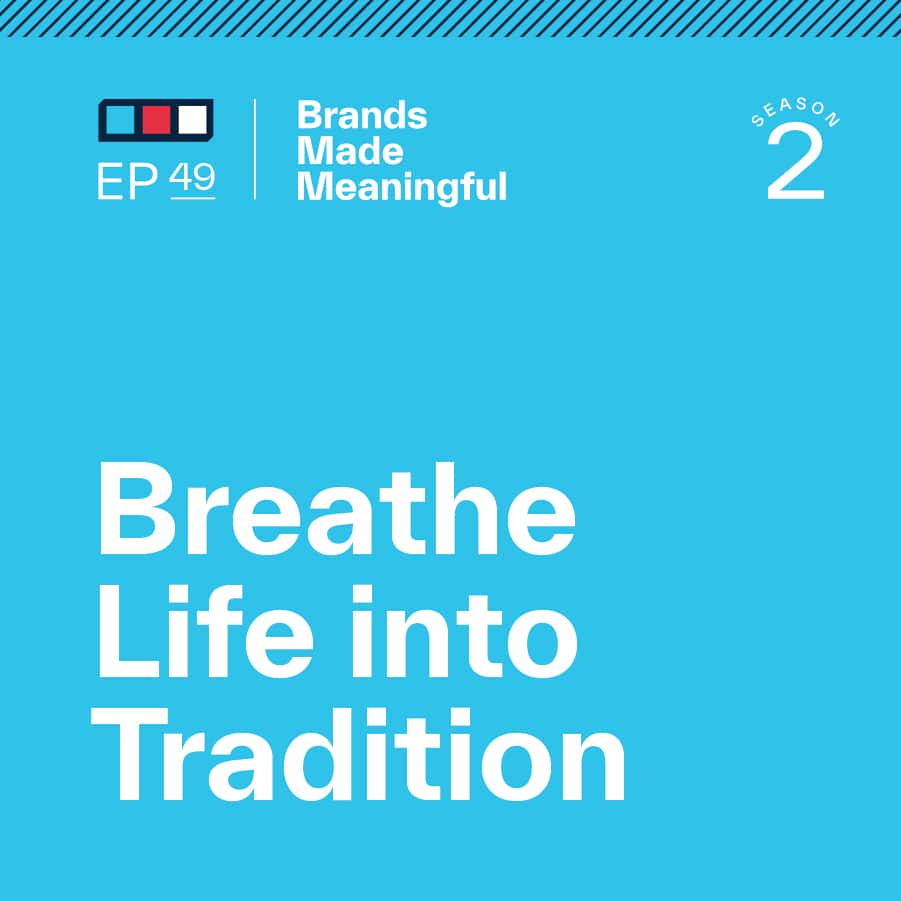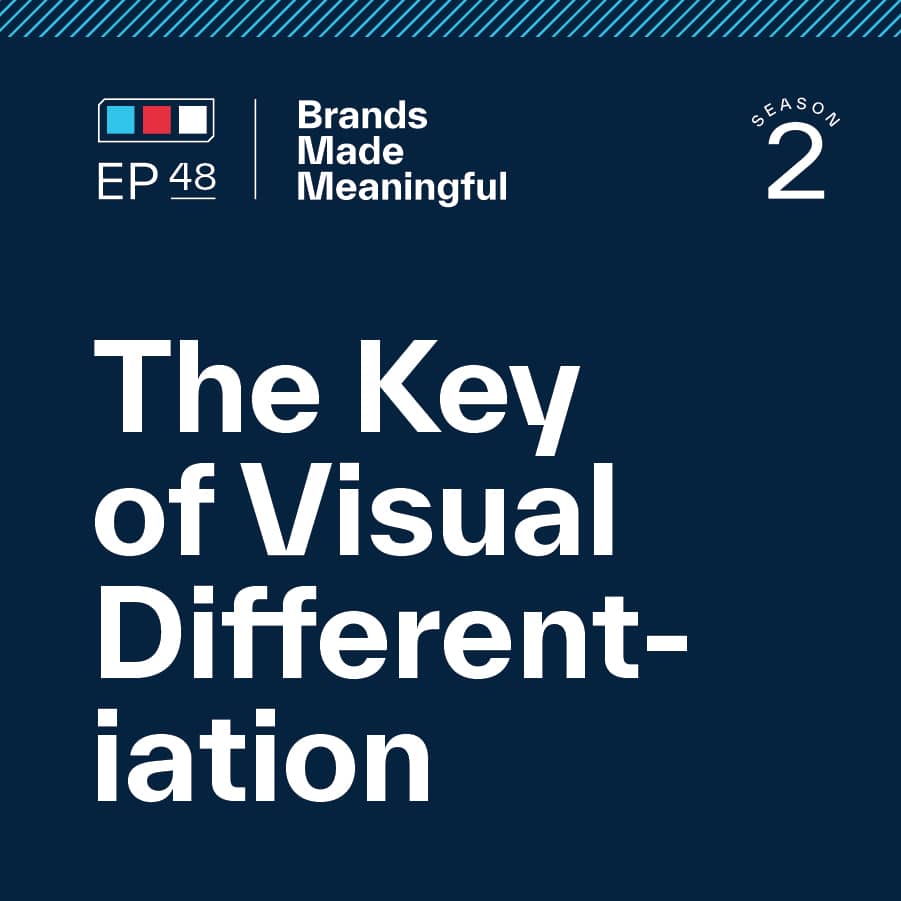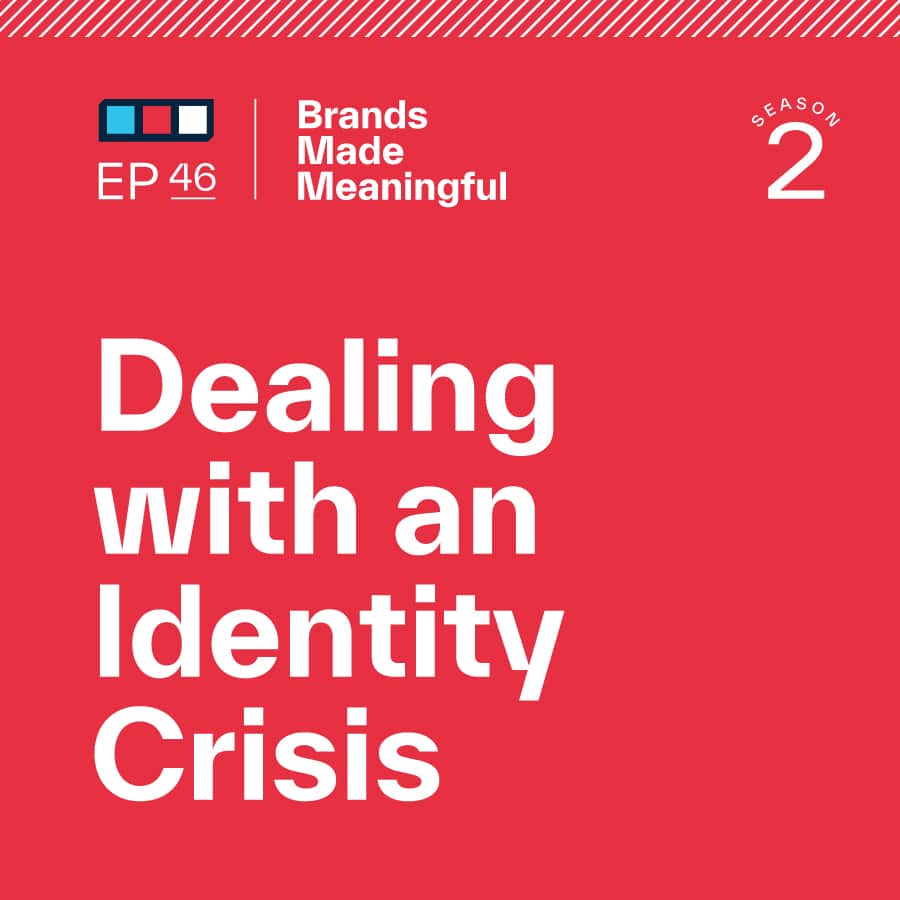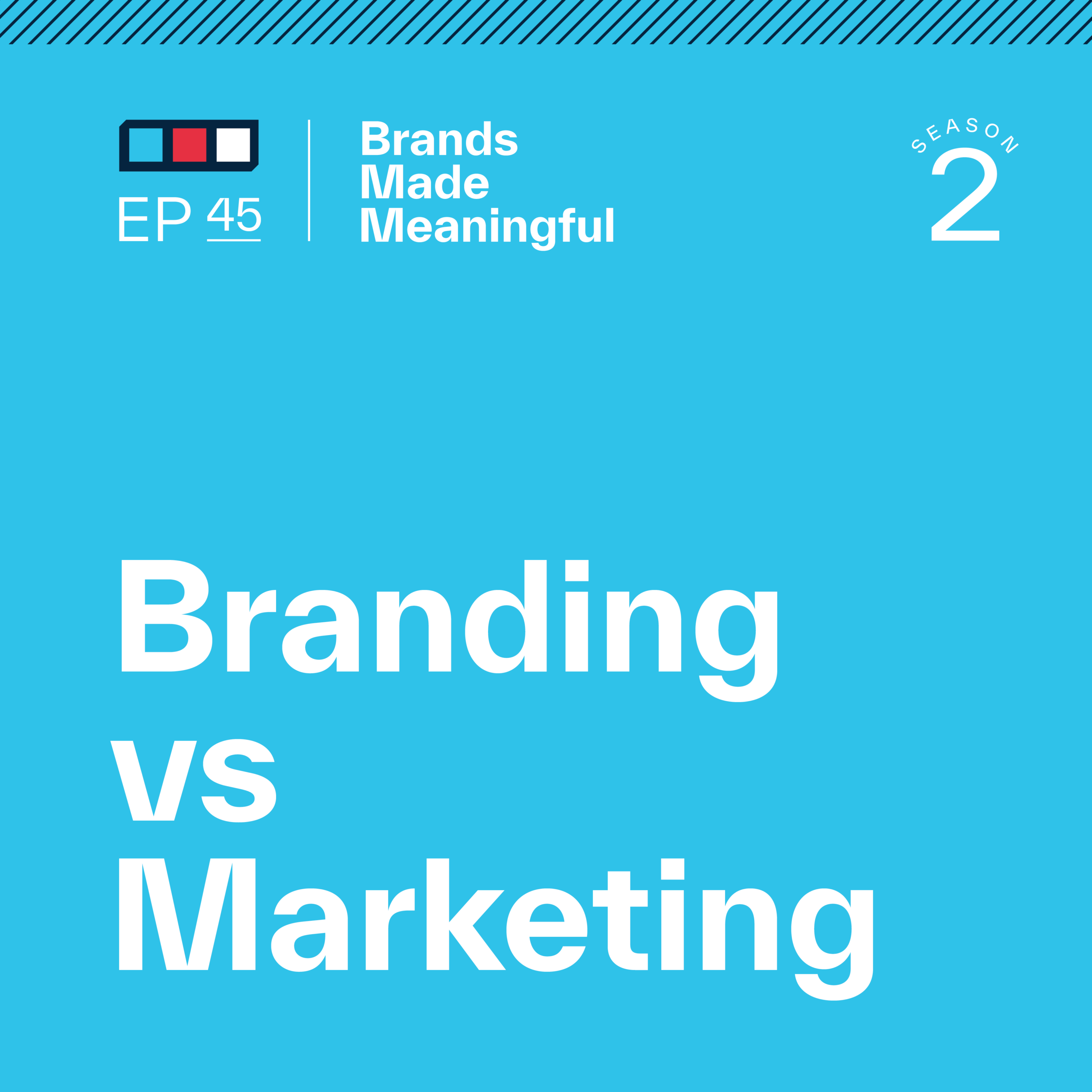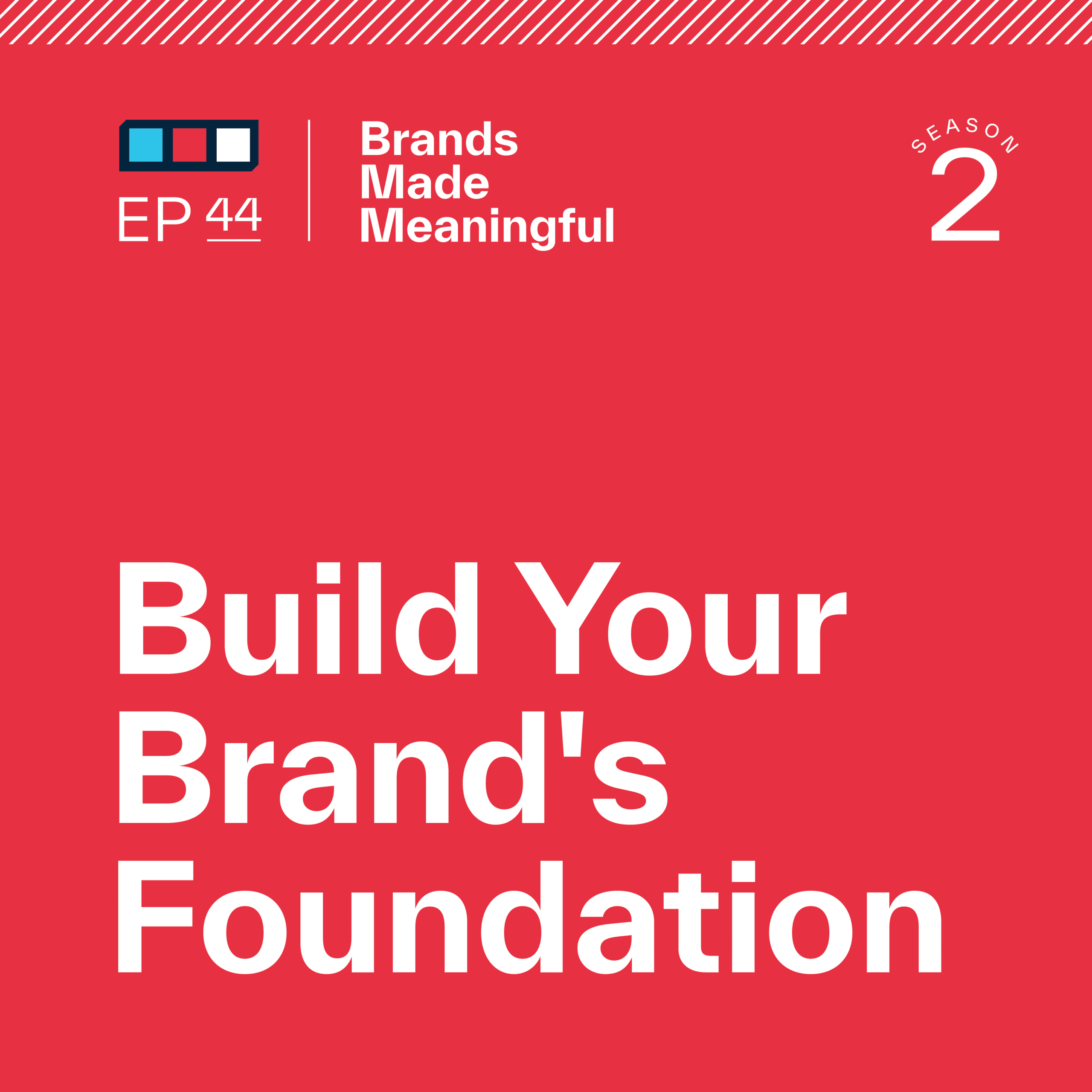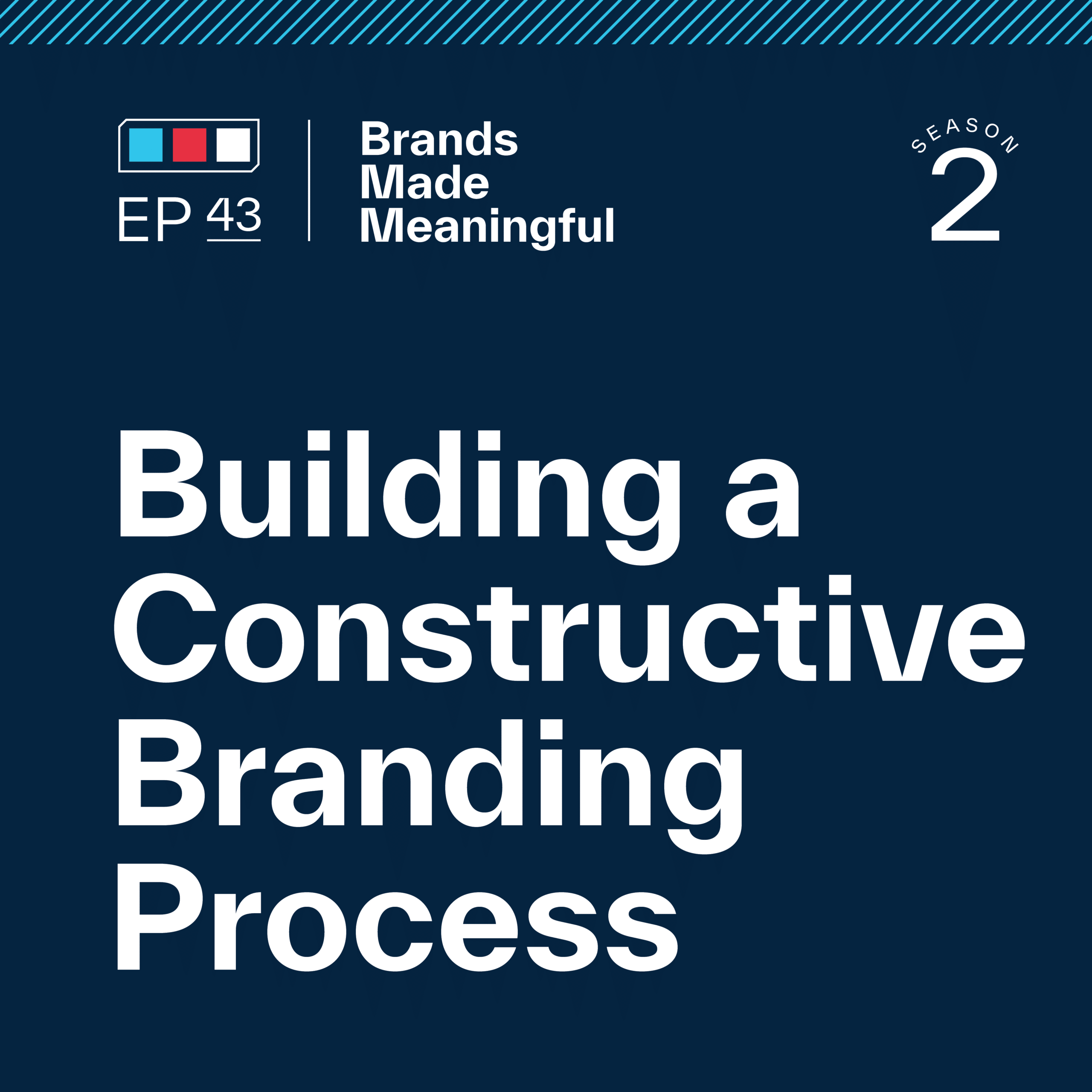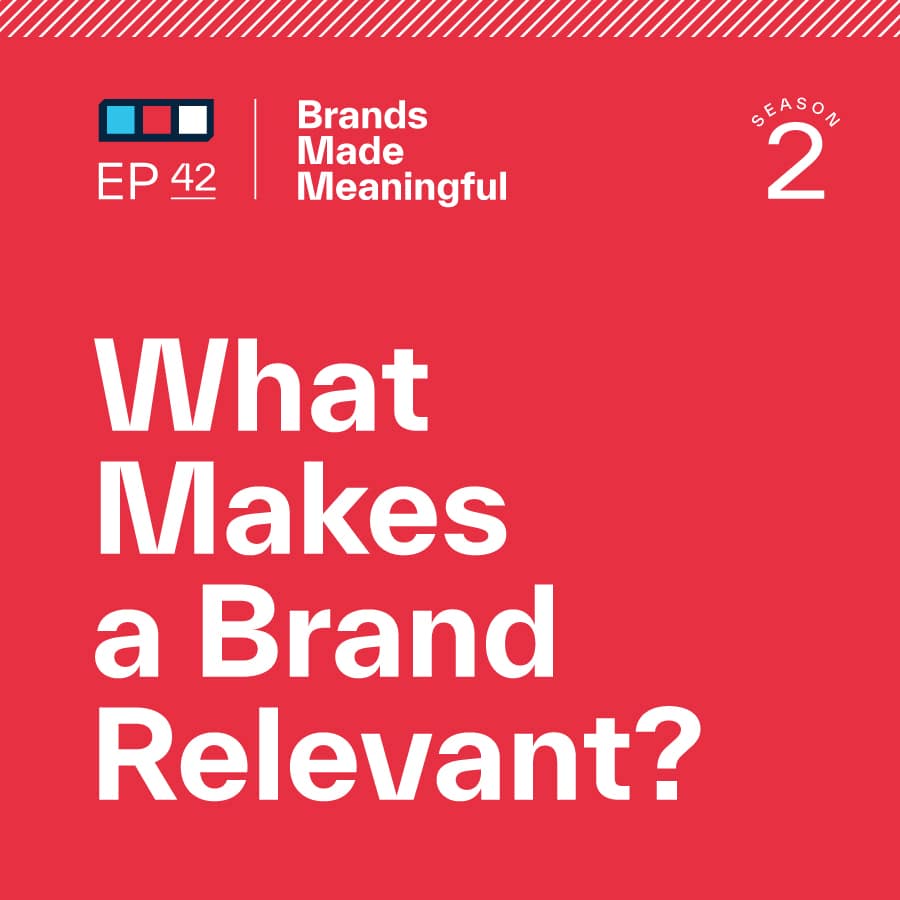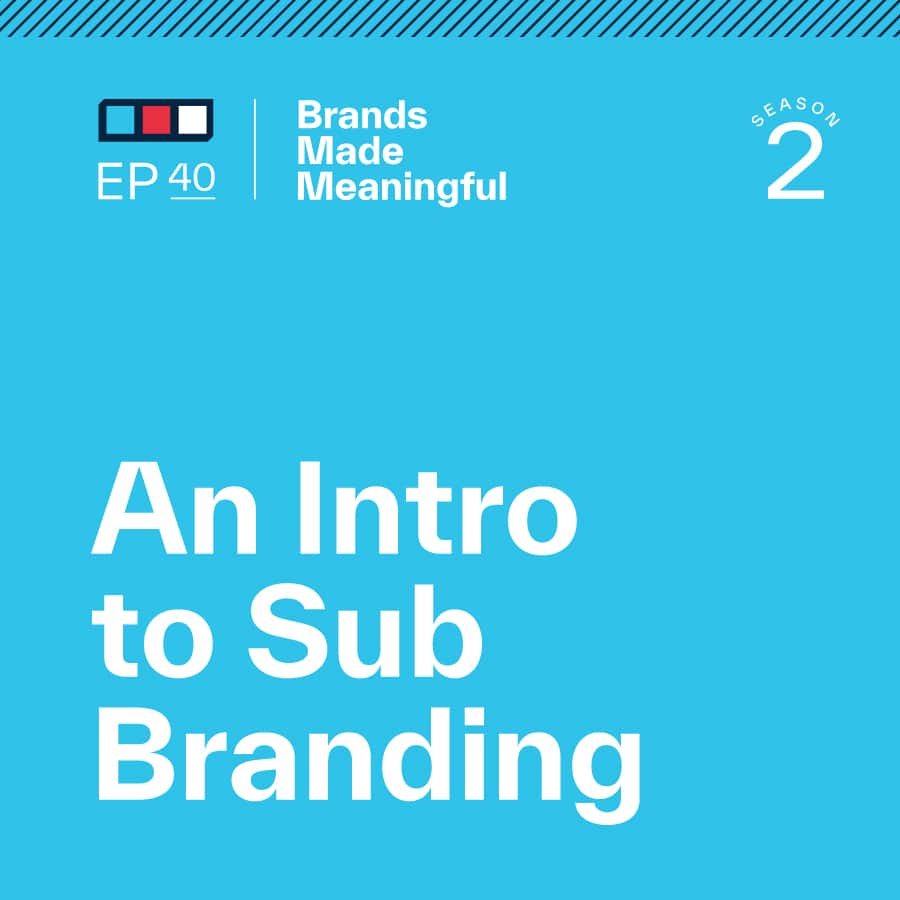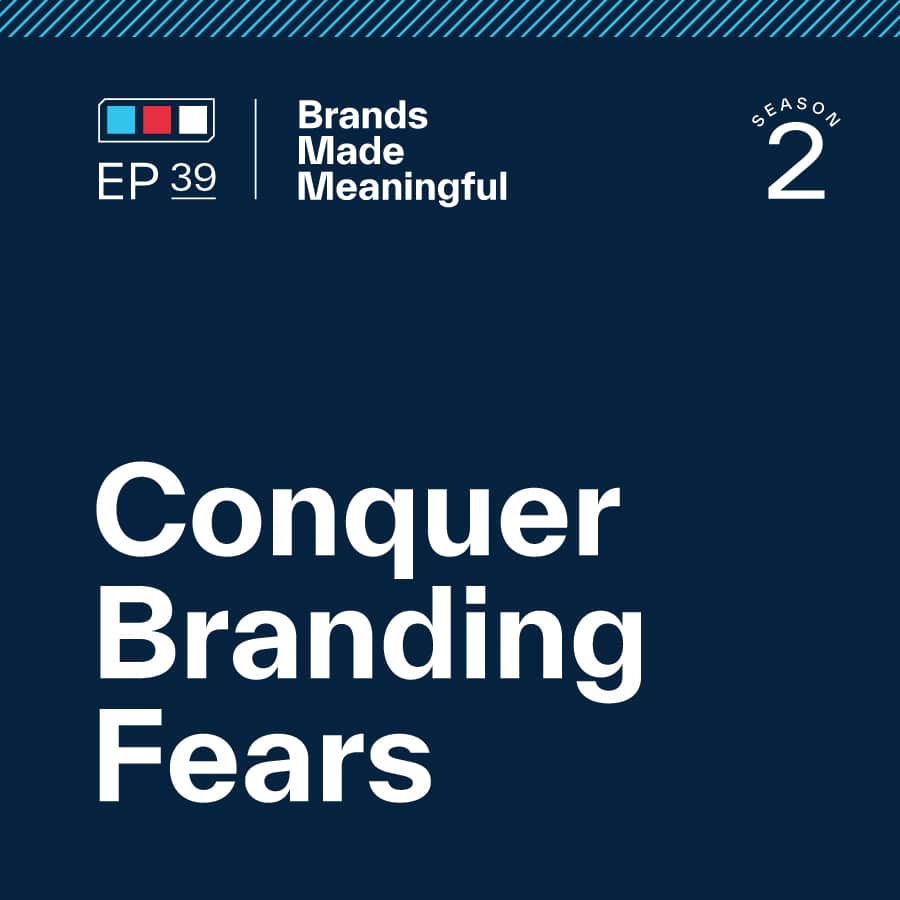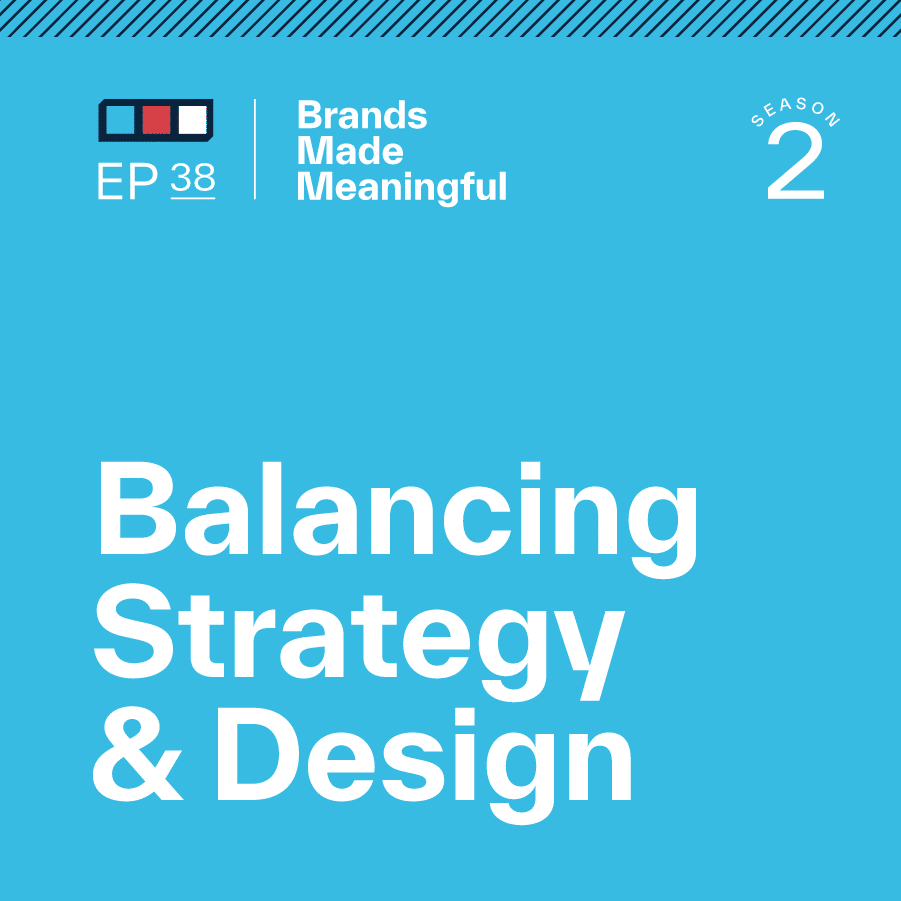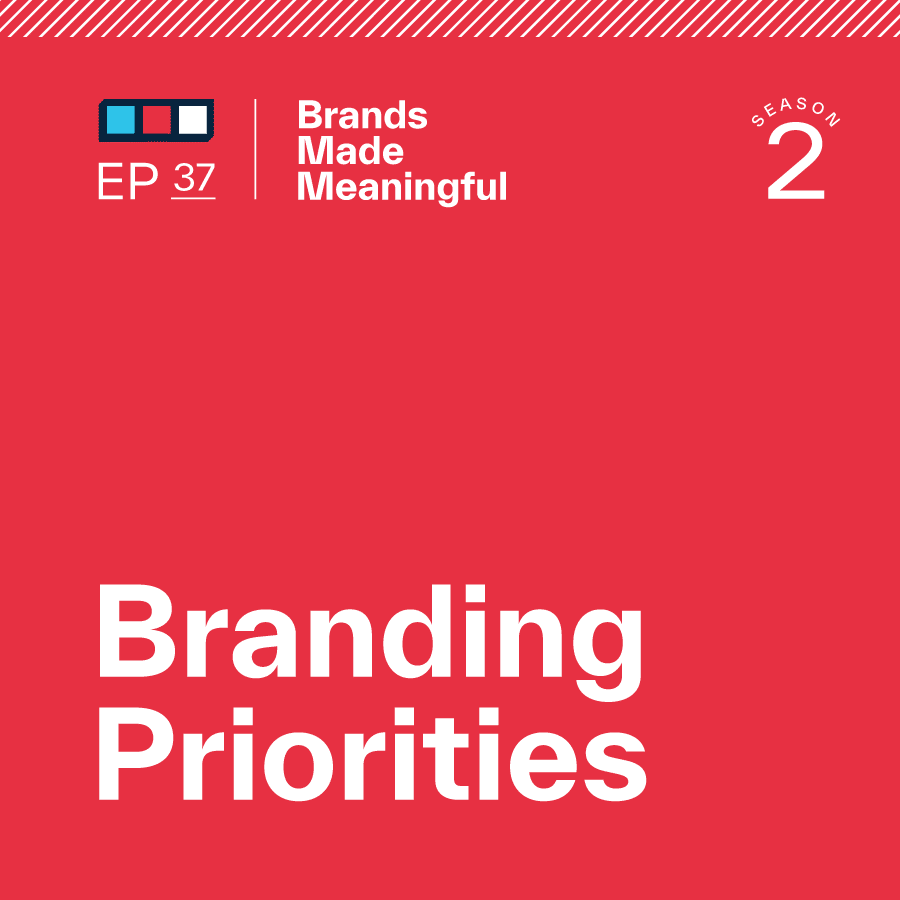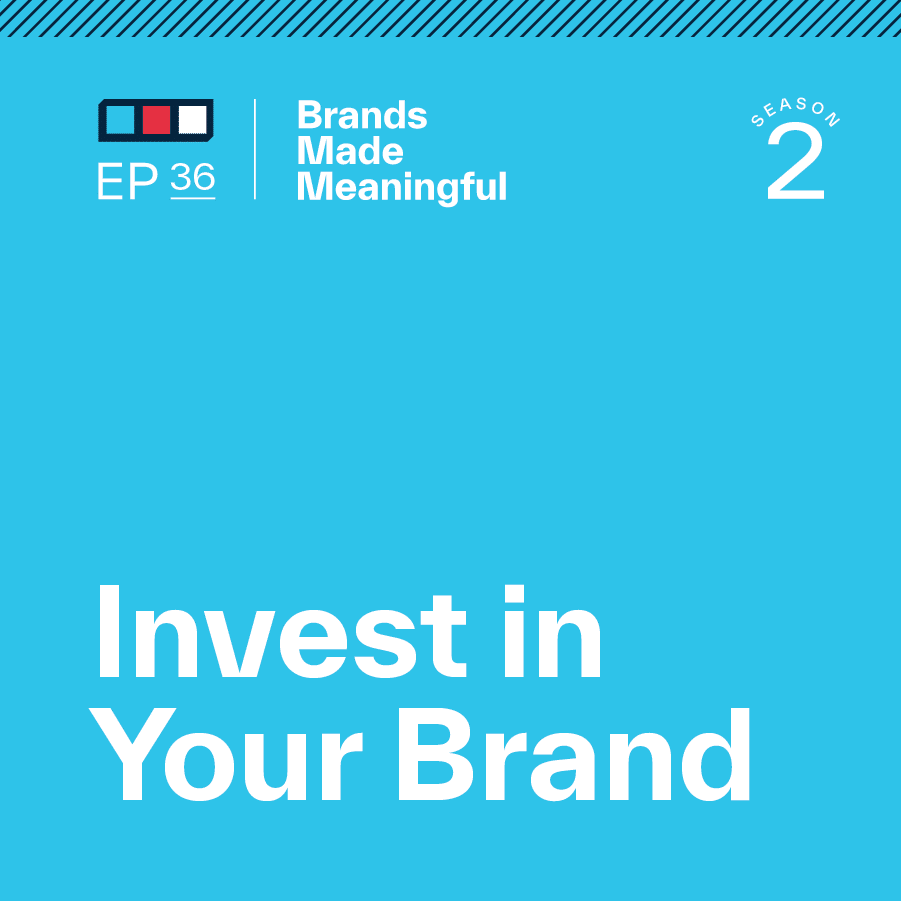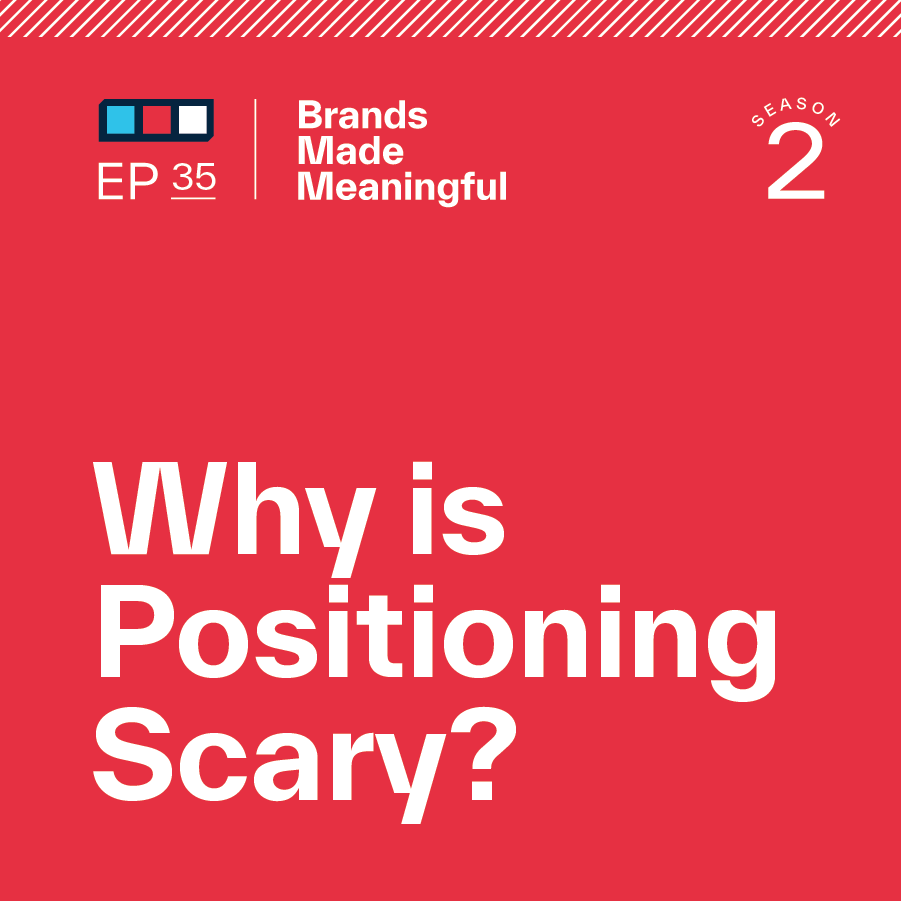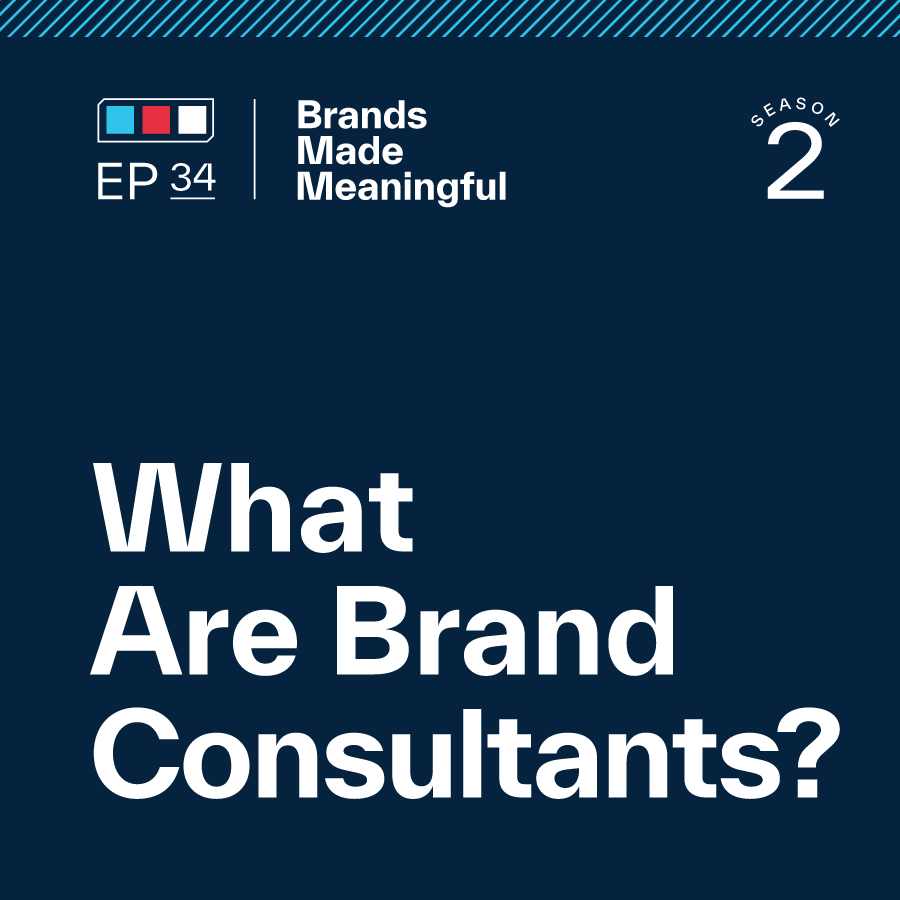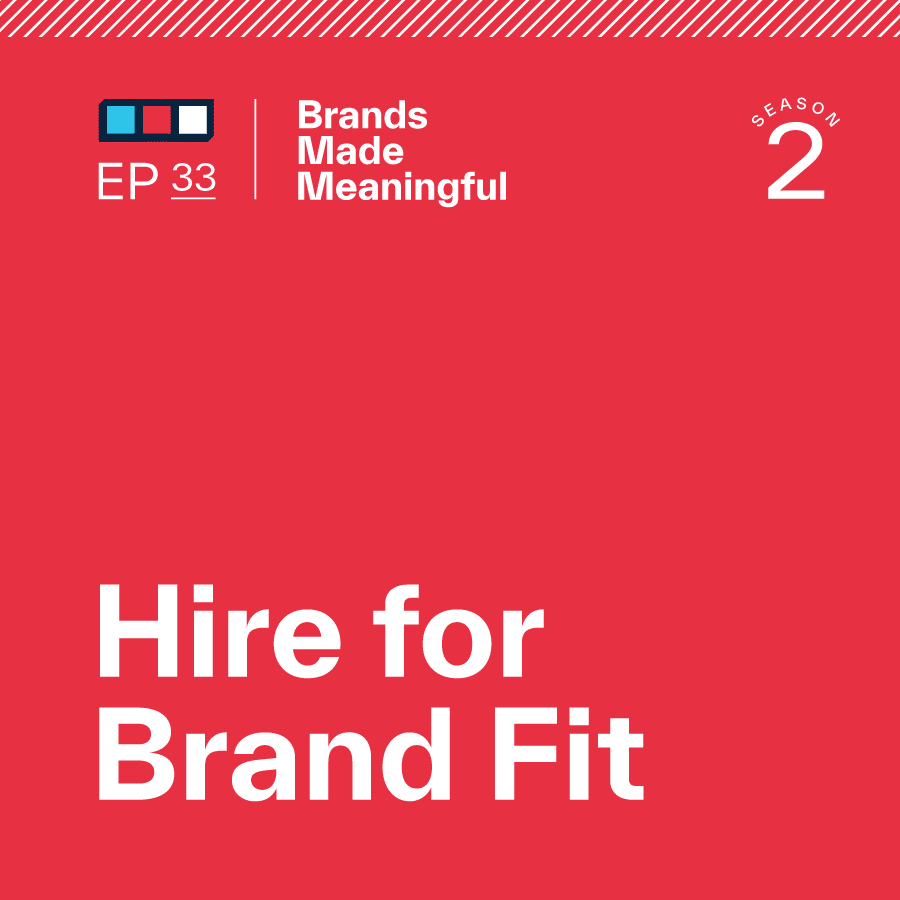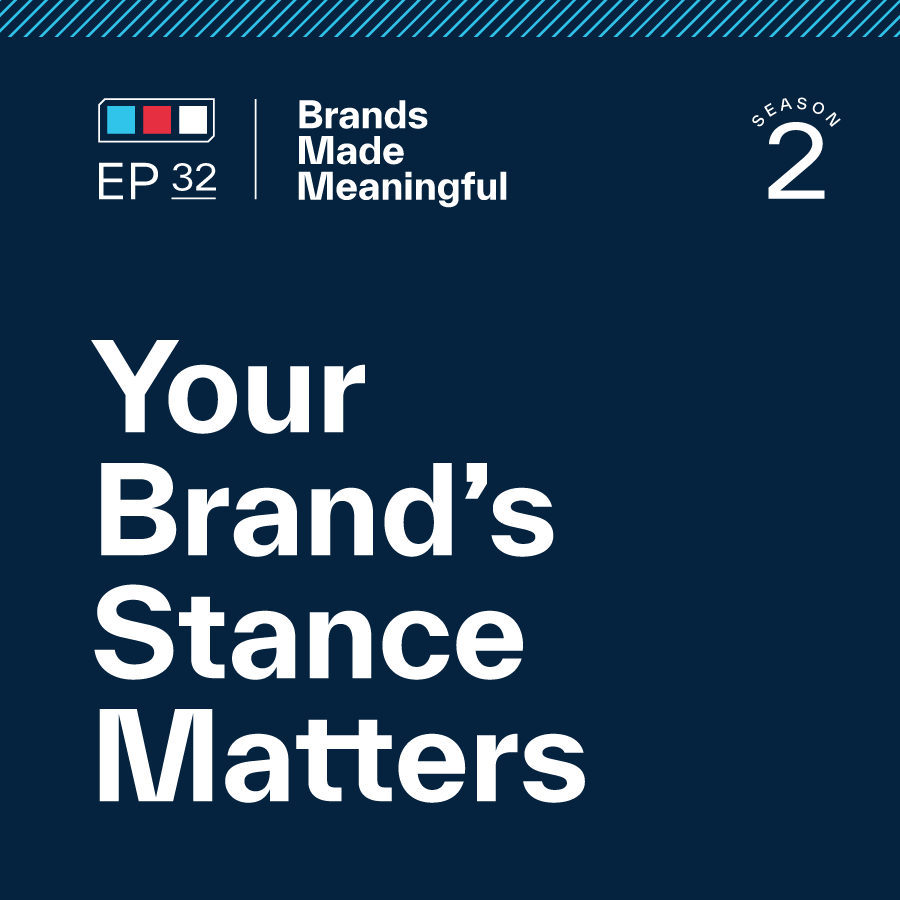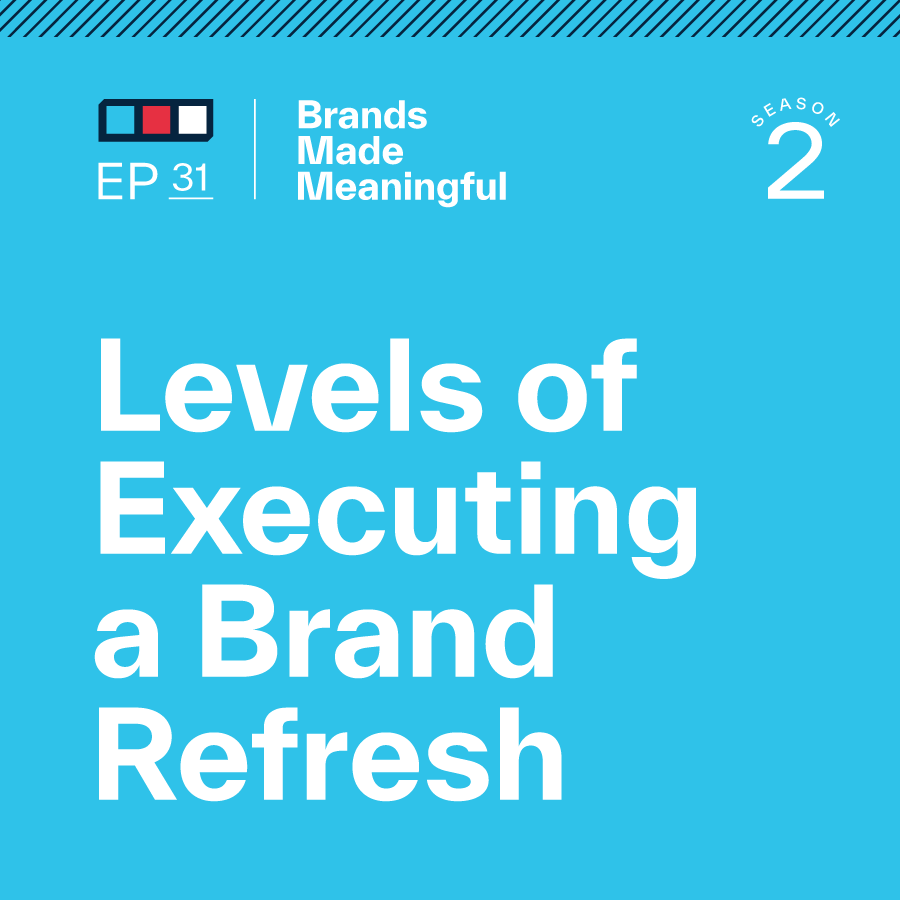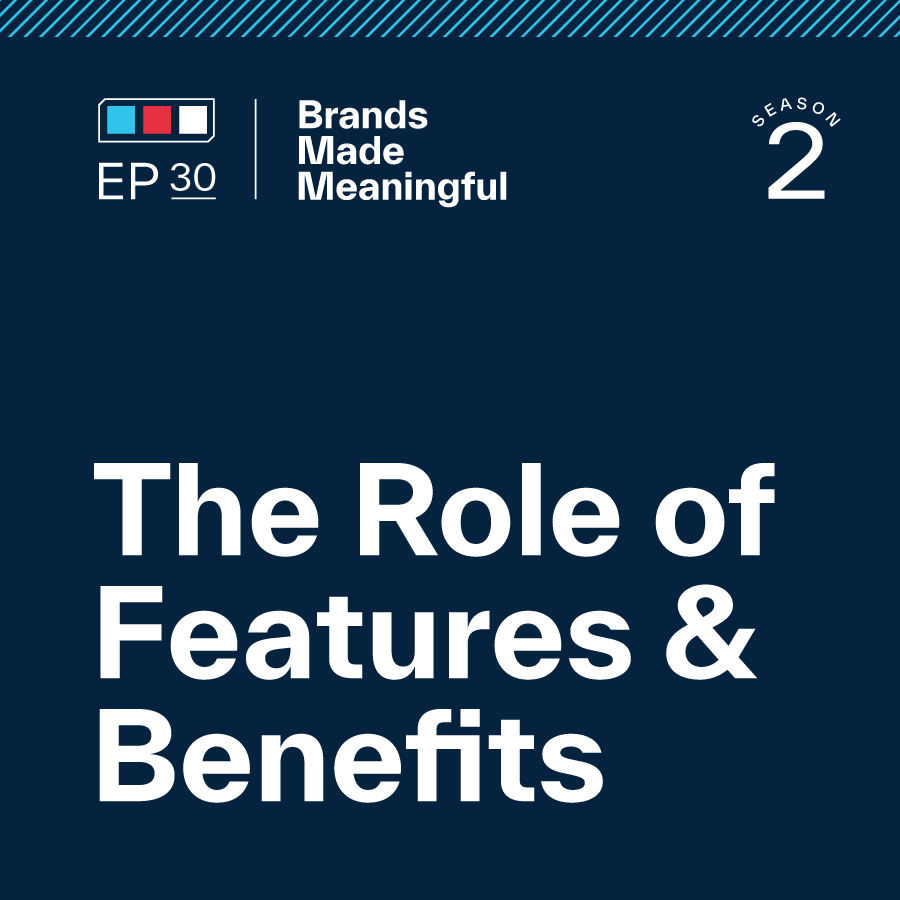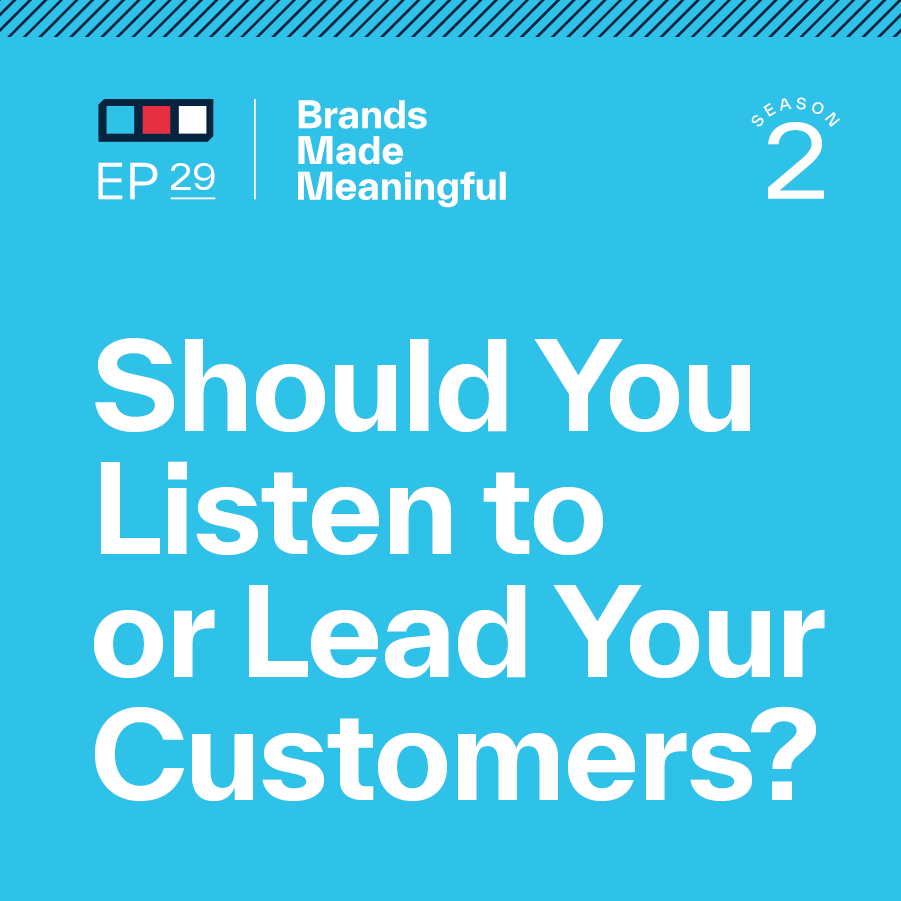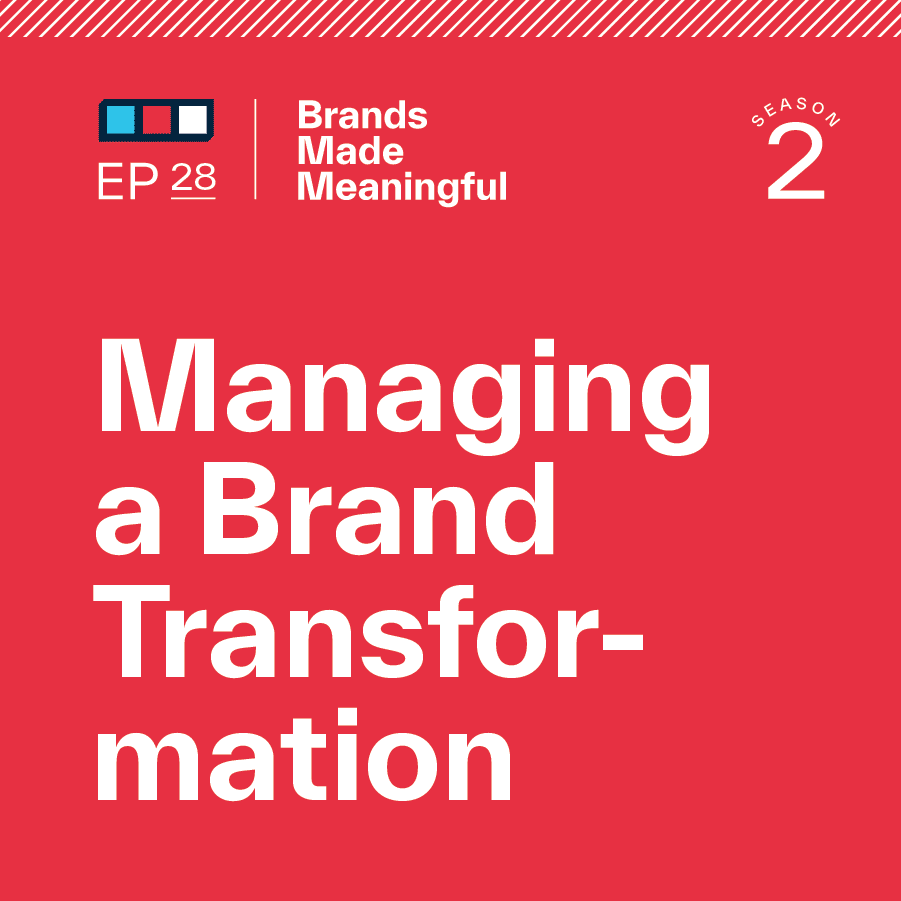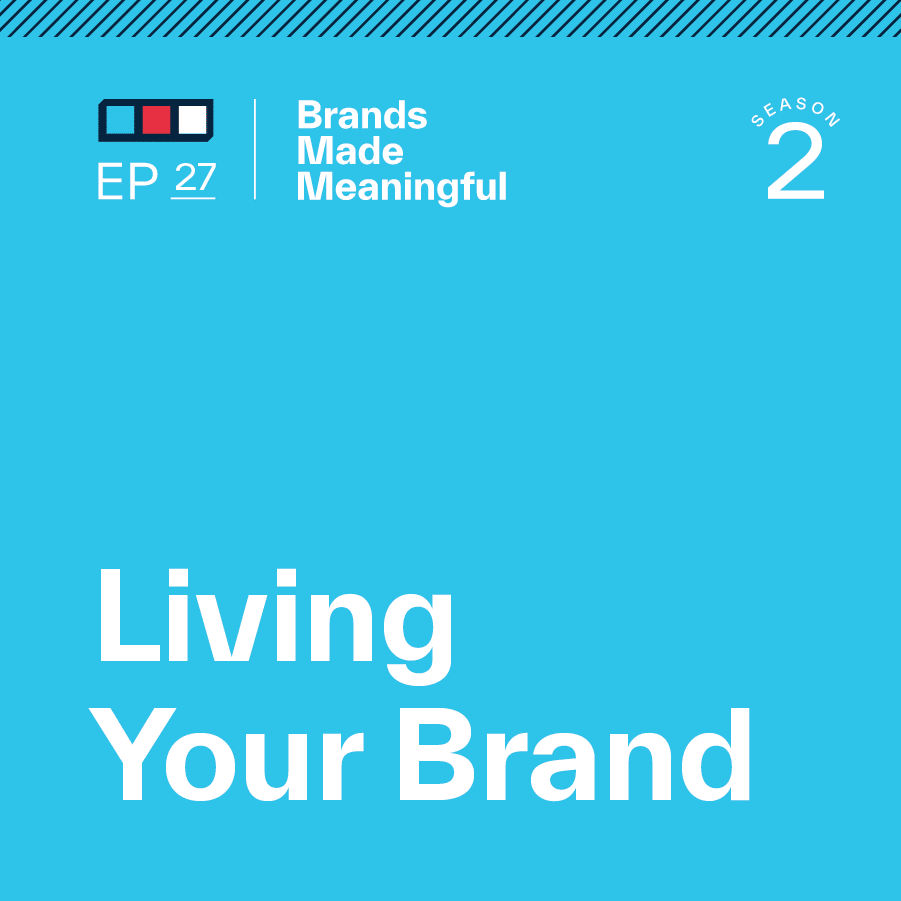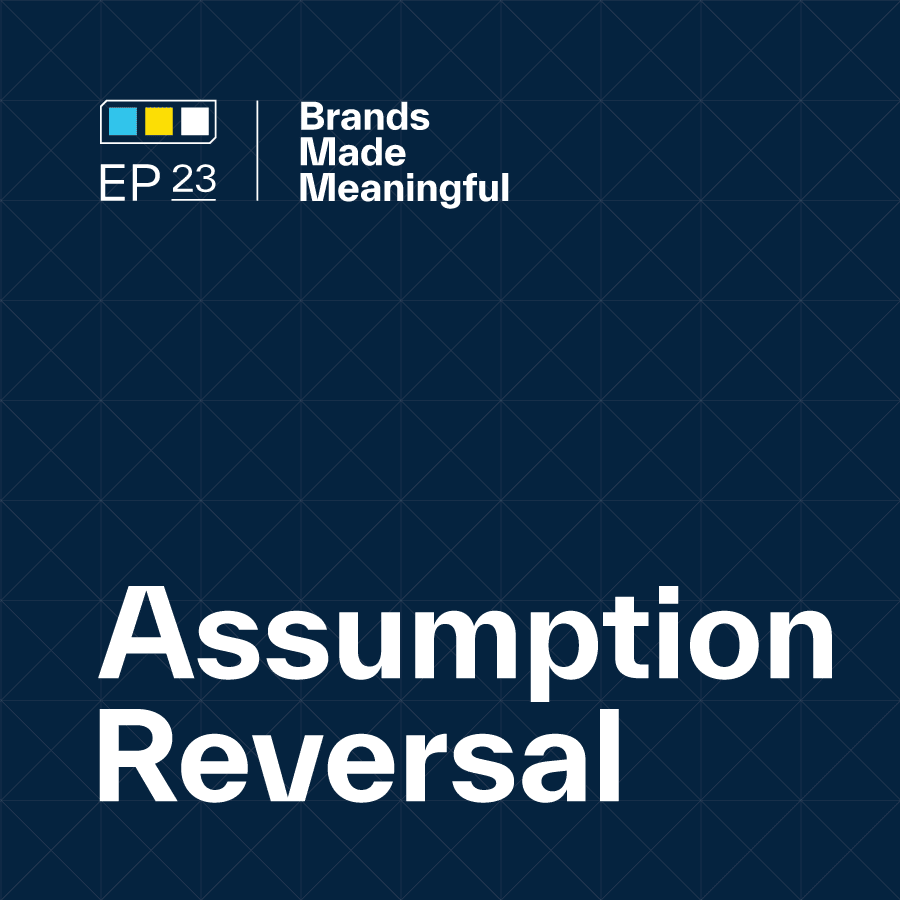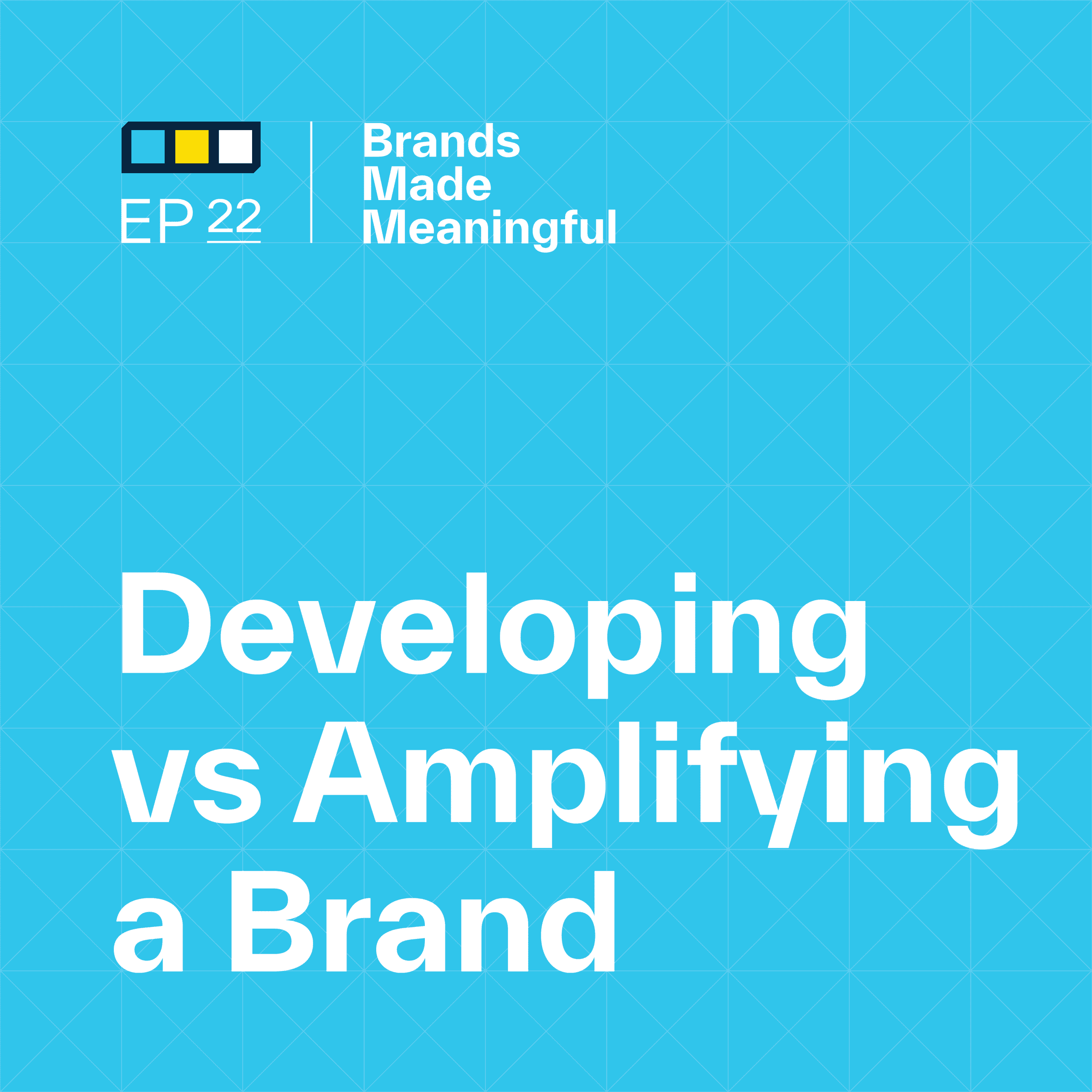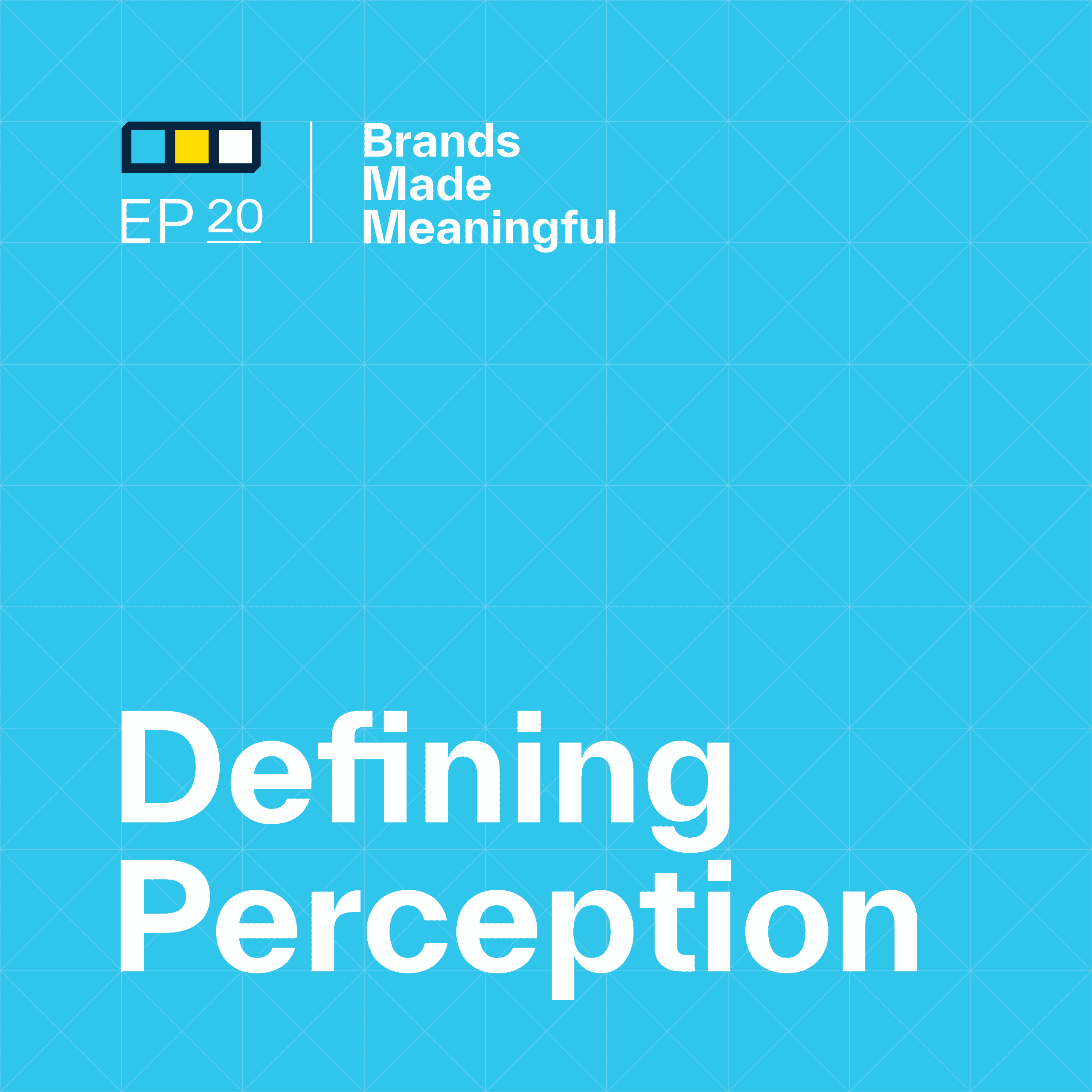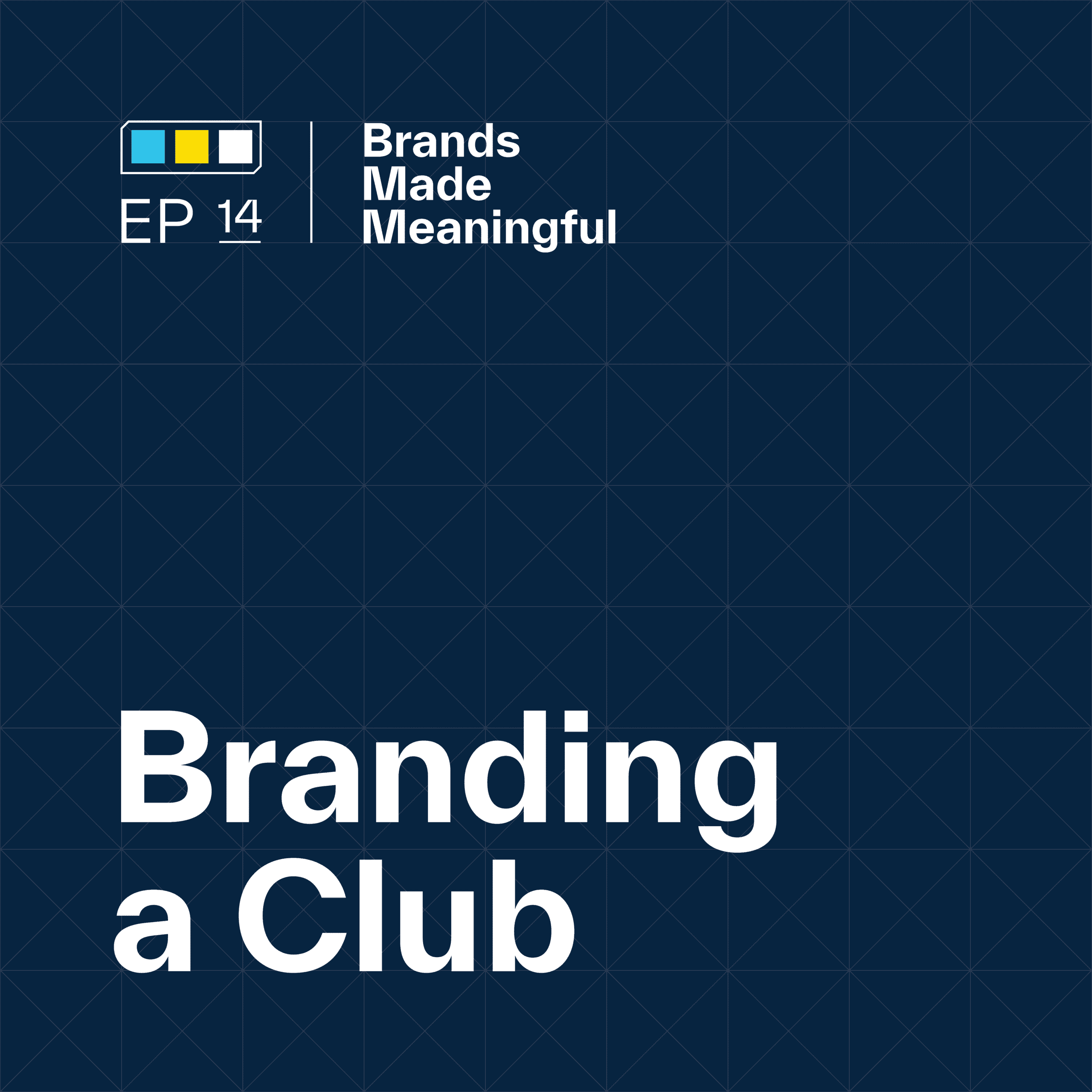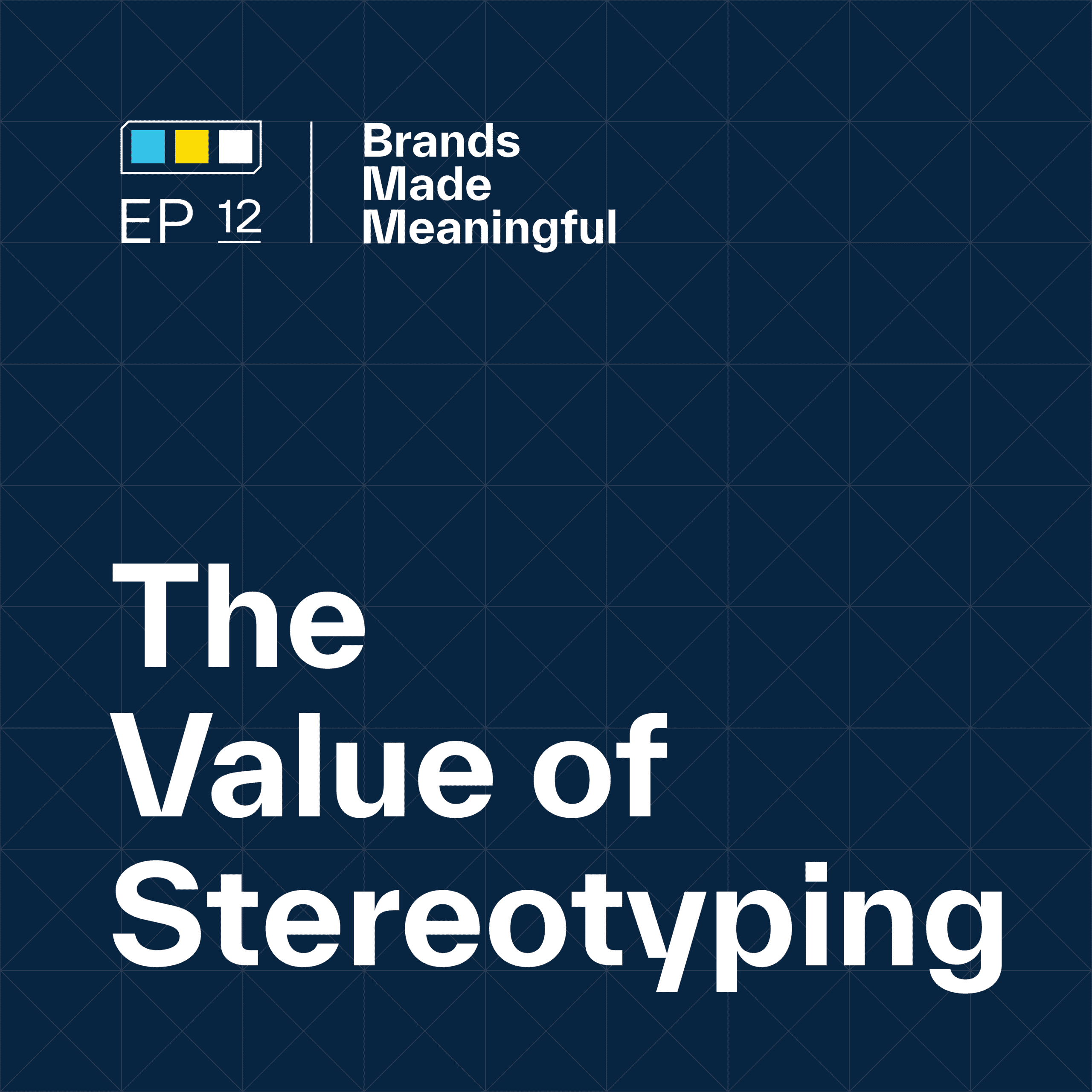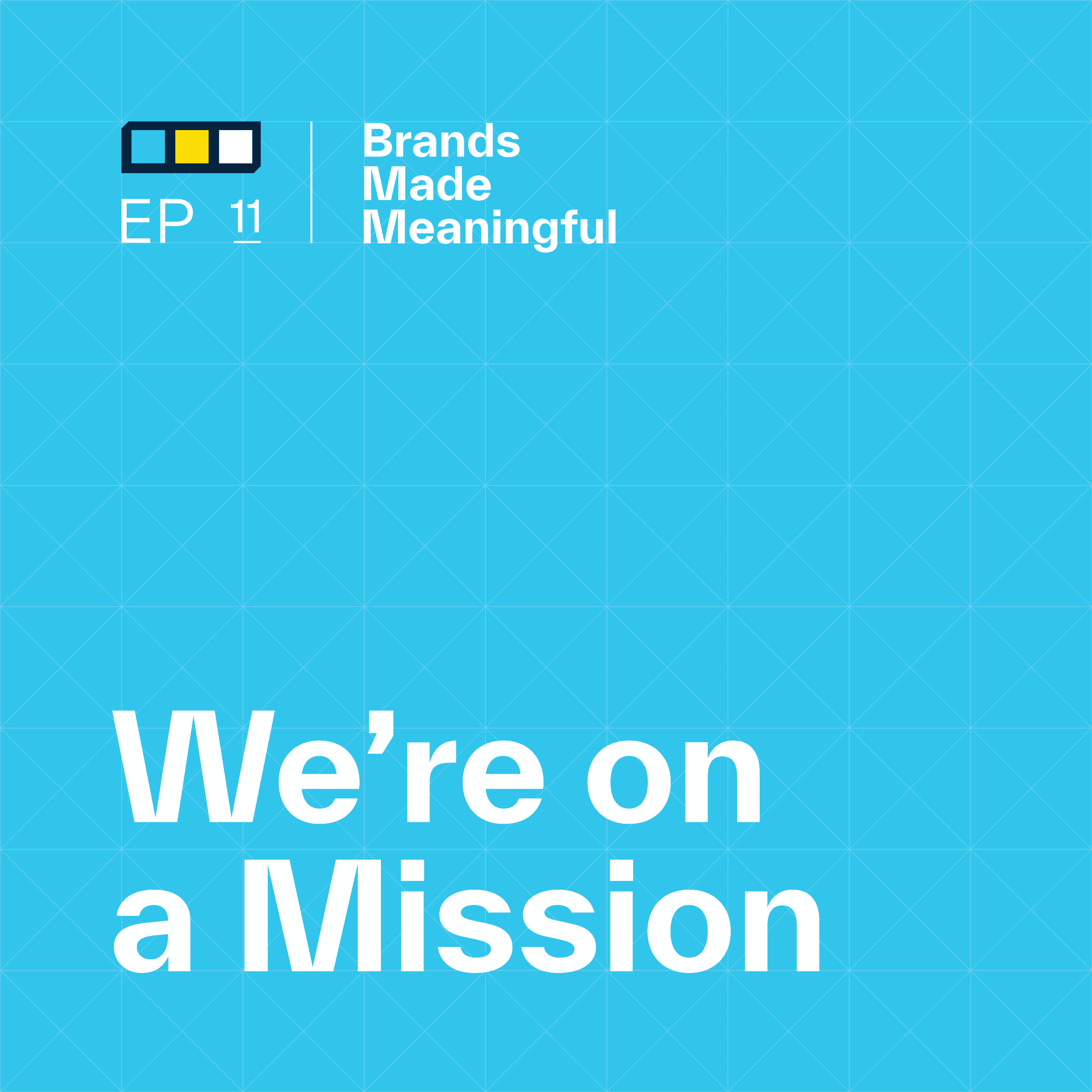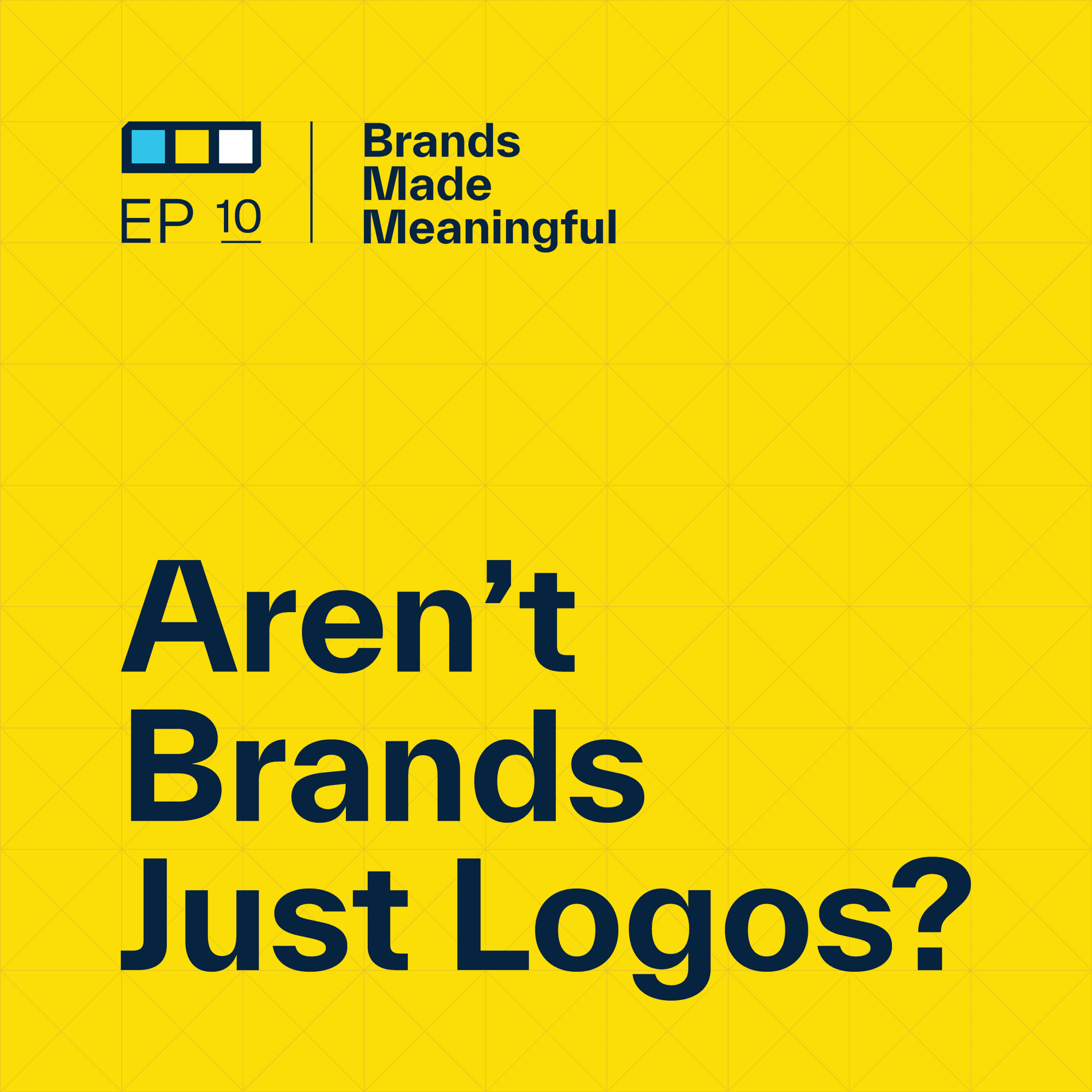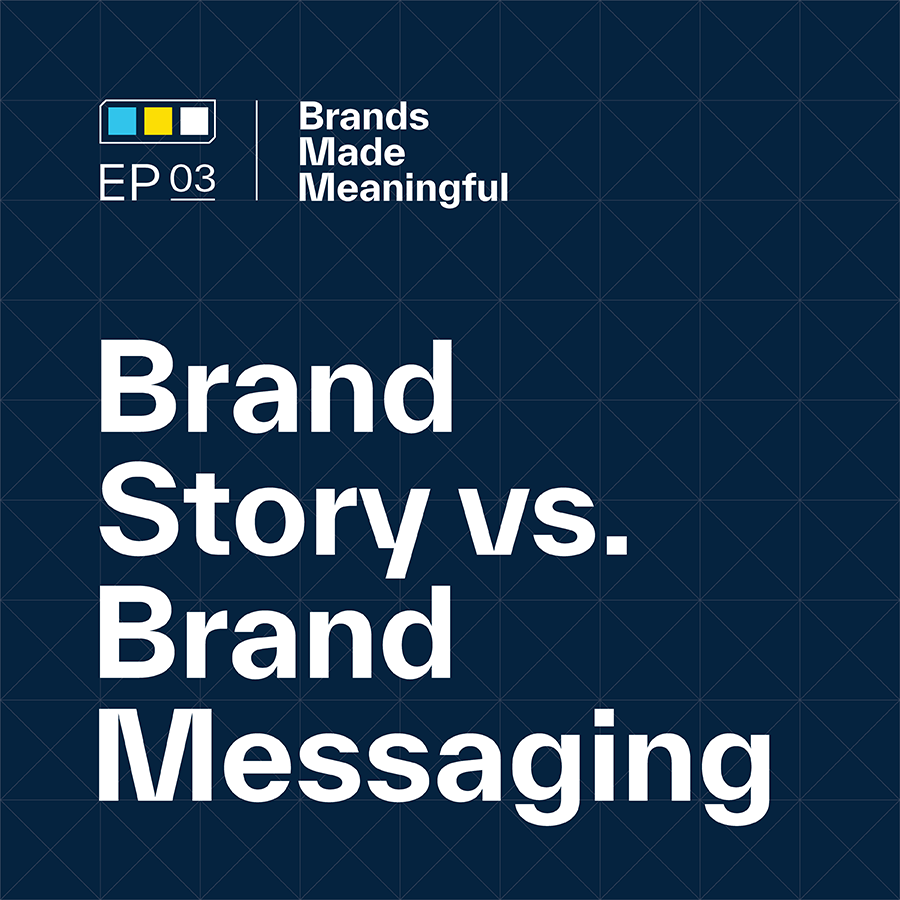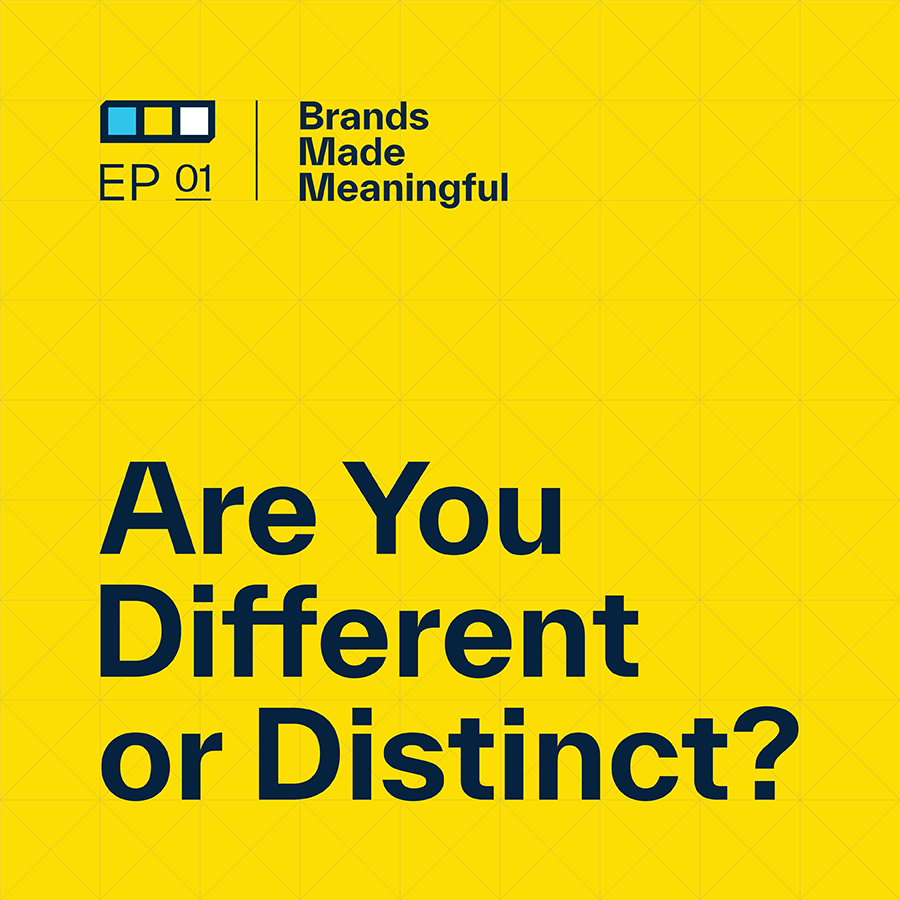EPISODE 41

Your Right to Win
Episode 41
Derek and Tucker discuss the “Right to Win” and the odds of your brand’s success within your target market.
EPISODE TRANSCRIPTION
A phrase that’s come up time and time again is, “Do we have the right to win?”
Tucker That’s a great question for anyone getting into the strategic mindset of saying, how do we win that business? How do we win a customer over how do we do all this other stuff?
Expand Full Transcript
Tucker But asking yourself, What is our right to win or what should our right to win be, is really pivotal. So what I’d love to talk about today is what that means and how someone can understand that phrase in a way that helps their brand but also might help their business and provide a little clarity for their team.
Derek I think the phrase right to win has been around for a long time and maybe more so on the corporate side of the world. The phrase is relatively new to me. The concept, when we talk about what it means, is not new at all. It’s a lot of what we do and why we do things or why we guide clients in a certain way strategically. But I love the phrase. It really very quickly sums up where you can play and who you can talk to in an authoritative, experiential way where you can be a leader in somebody’s consideration set.
Tucker I like it just because I love competition. And so when we get into your right to win, it really looks at all those things. Who are you speaking to? Who are you playing against? What game are you trying to play? And it starts becoming more approachable from my lens too because there’s this level of how we can break down the complexities of business and strategy and brand and make it just seem like, Okay, that’s obvious. Now I know which direction we’re moving in and why we’re moving in that direction.
Derek It’s a great sports analogy too. With all the work that we do in sports, we didn’t win that game. We were never going to because we weren’t prepared. We didn’t put in the work. I didn’t practice enough. They overprepared, they out-prepared us, whatever. Or they were just in a different league. We’re a baseball team and we just played a basketball game. We didn’t have the right to win that game. Our skill sets didn’t align with what that action and event required.
Tucker And so that’s to say for your brand, if you’re playing in a realm which you shouldn’t win, you don’t have the right to win in it, then you shouldn’t expect great results if your odds are not in your favor.
Derek On the other hand, there are people that we talk with who aren’t looking at the area, or maybe they don’t realize it, or they’re just so close to it, or they take it for granted and they don’t realize there’s a very certain market or audience that they can be crushing it with, but they’re looking somewhere else. Whether something else is interesting to them or they think they might have an opportunity there instead of focusing where they already have inroads, they’re looking for something else.
Tucker So our team defines the right to win as your ability to have favorable odds in a complete situation. That’s a little bit more nuanced. But what we’re talking about is who you are going after from a brand side, what you are offering, and if they align to the point where you should win that business or win that sale. You should win at least 50% or more of the time. So for us, it’s to say, If you have the right to win, that means that you’re going to win 50% or more of the time. That doesn’t sound great, honestly, because it’s not 100%. But that’s just not how it works.
Derek Be great for batting average in baseball.
Tucker I think that it goes back to the putting analogy of a ten-foot putt. Most people see a ten-foot putt and think that they should hit it every time. But the percentages are so low that you hit it every time – it’s under 50% – but it just feels like you should. That’s the same way we look at this. Your brand is built to win more than 50% of the time. You feel like you should win every time. But just the nature of how things work, side relationships that people have with other people, just the timing, and other things work out. You can’t plan on winning every single time.
Derek I’m thinking of a conversation we had with a customer recently where we had basically a discovery kickoff. It was a learning conversation to try to take in as much information from her as we could, as we were then going to step into the strategy process and outline what our recommendations for her were. She’s thinking about renaming her company. She’s thinking about rebranding. And outside of just the cosmetically, it was to attract a new audience and strengthen her customer base. We’re seeing a very clear theme of an area and deep expertise that she has. And so then we steer the conversation to ask her why she’s not going all in on that. For us, we would think of this as positioning. Who are we for? How can we not only give ourselves better odds with the audience that we’re going after but how do we reduce competition when we look at who else is doing something similar in our space and the things that we do, our experience, our expertise, how that differentiates us, and how that sets that apart? I think she had just taken for granted how deep her experience was and the opportunity that she had to go in a very specific audience direction.
Tucker And that turned out to be a clarifying moment for her right to sit back and go, okay, I see what you’re talking about. Now this makes more sense. There was this challenge of wanting to win with everybody. She wanted the right to win with everyone. That becomes challenging because you might not have the right to win with a specific audience because of something that’s different than a different audience. So for her and her business, it was to narrow it down, to then look at a smaller market and to say, How do we win with these people? And then we can grow off of that if we want to in the future.
Derek Her first reaction was, But if I focus and narrow in on these people, what about all of them? Now I’m going to lose the opportunity, all that goes away. Am I closing all these doors and now I’m actually limiting my opportunity?
Tucker You just don’t have the right to win there. That doesn’t mean you won’t win. You have the right to win here. That doesn’t mean you’re going to win every single time. You don’t have the right to win over there. That doesn’t mean you’re going to lose every single time. So there’s this balance of understanding where you’re placing your strategic cards and making sure that those odds are stacked in your favor in the places that they should be stacked in your favor to match your business strategy.
Derek If somebody hasn’t determined where they have the right to win, what’s an example or a red flag or a symptom or a problem that they might be running into?
Tucker They have market messaging that is everywhere, that is fragmented. What you’re trying to communicate is everything to everyone. And you don’t even know what your core competencies really are. That’s a big red flag to say, We’re trying to sell this, but we’re also trying to sell this other completely different thing to a different audience. And it’s just not working and we’re just too fragmented. That can do a lot of bad things to your organization. It can make your employees frustrated because they’re not winning where they feel like they should be winning. But that’s because they’re not given the advantage they could have. That’s reducing your resources across the board because you’re not focusing on the one thing that you really have the ability to win with if you were to just focus those resources. It can really hold you back from realizing what you could be versus what you want to be. And there’s this difference.
Derek When we worked with one of the sporting goods companies that we’ve partnered with over the years, they had developed really deep, strong inroads in football and basketball. But at the time they saw the running audience as a really great new market where a lot of their current products would also be relevant. So it wasn’t that they were necessarily going to develop brand new products, but maybe modify some of the products to be runner-specific – to benefit the same similar emotions but for runners. So for them, they saw that as a growth opportunity. The challenge is running brands. There are so many other running brands that were already really established that had already earned the trust. For me, as this fictitious runner, looking at your brand that I’ve not heard of in my space versus this brand that I have this deep trust in, it was hard for that audience to understand the reason why they should even give your brand a chance other than it costs less.
Tucker That’s a super common problem. To say, We want to go into this. This is a good expansion area for our brand. But that’s not always an easy task. That doesn’t mean that it’s not possible, but that’s where you have to start building the rights to win.
Derek So, for them, they had all the right to win, and still do, in basketball and football. And they were absolutely looking at ways to expand and deepen the connections within those industries. This was an opportunity that they saw. They did the research. They believed there was an opportunity. And they went into it knowing that this was going to be a challenge, but it just proved exactly what we’re talking about. They didn’t have the right to win in the run space.
Tucker And that’s okay. Because with the corporate strategy of saying, we’re going to expand, you can take your current product line or capabilities and say, We’re just going to hone in on that and get even better in the basketball or football space. We get even better and own that even more. Or we can expand. We can send our resources somewhere else and expand and start establishing that right to win. That’s a corporate strategy. That’s a business strategy to say, Which way are we going? And that can then inform what the brand strategy needs to be to help you win in that space as well. So what I’m saying is you don’t have to just say, Where are we at today? How do we build a brand for where we’re at today? This is where we’re at. We only have the right to win here. What you need to do is decide what your right to win is and if you’re going to expand it or deepen it. And so if you can make that decision, then it becomes a lot easier to say, Okay, what does our brand need to be to meet those expectations, to then communicate that right to win in those different spaces? So we were working with the professional sports team and they were talking about new audiences to go after, new markets to explore. And these markets become very nuanced, especially international markets when they’re looking outside the U.S. and saying, We’re trying to go gather a new market base. We’re trying to get fans from other countries. So what do we do? How do we pick which countries to go after? There are some people who say, Well, we’re just going to go after who we believe is the biggest opportunity and then go develop our brand and change it to that. And then there are other people that say, We’re going to go find the people in different countries that meet the same fan base that we have here with the same values and the same beliefs and all those other things, and just tell our story to them. Those are both good directions, but they aren’t things that you can do at the same time. So there’s the balance of saying you can have one strategy or another, but having both strategies can deteriorate your ability to do either of them.
Derek There are two sides to this conversation or two examples, the Internet on the international example – this is an NFL team. Anybody who watches the NFL sees that they play a couple of games in London or in Europe every year. I think they play a game in Mexico or two every year. And there’s a deep desire or belief in the organization that the growth potential for them is to go international. But my question is, do you have the right to win in those places? Is there room to take mind space and audience share? If I’m a European person and I’m spending all my time rooting for a Premier League soccer team, is there space in my life to now root for an American football team too? And I don’t know, but that’s what they’re exploring. However, their challenge is finding out if they have the right to win with a certain customer base or audience segment within those places.
Tucker And most of these professional sports teams, even if it’s the NBA, the MLB, any of them. They have a brand that’s a franchise, which is hard because you’re a part of a bigger brand so you have to be limited by that. But you also have developed that core story. You’ve developed that brand for your homegrown fanbase. That can be a difficult thing to just change on a dime because you risk the potential of losing that right to win with your current fanbase.
Derek So that’s another red flag or challenge or obstacle or threat is that if you do this and if you do this the wrong way or unsuccessfully, the risk is losing the people you’ve already won.
Tucker And then you get into the conversation of what is the bigger opportunity here. How do we balance the right to win here and develop the right to win somewhere else and make sure that we’re doing it in a way that makes it feel like we’re not alienating the people already a part of us? So there’s that balance of positioning. This is all just positioning and figuring out what your strategy is, but that could become a very risky thing for sure.
Derek I think it’s part of positioning, but I also think it goes deeper. I think it goes all the way to the root of brand strategy. It goes all the way to who are we and what are we for and why are we doing this. And a lot of what we’re talking about is market expansion, which is a financial reason why we’re doing it. But to look at those questions and decisions and opportunities from these business standpoints and say, does that support why we’re doing this in the first place? Or is this an opportunity that isn’t as validated as we think it is, and it’s actually distracting us from being even more successful at what we’re already good at? We work with Carbone’s and we always ask that. We know that it is less expensive to get their current customers to buy from them more often than it is to go find brand new customers.
Tucker For their product and how it works, absolutely. So when you’re a pizza place and going down that avenue, it makes more sense. But if you sell something that is a product that someone might buy once every ten years, it’s really hard to say what is going to keep that customer base if they’re only going to buy it every ten years. So that’s the nuance of strategy to say, Who is our audience? Not every strategy for one brand or one organization works for another one.
Derek Absolutely. I said that there were two things to that NFL point. The second one was within the US. So the team that we were talking about, there are players and video games and fantasy football putting more and more fans looking at individual players instead of just individual teams.
Tucker Think of the NBA. That’s a huge NBA thing. So they like players versus teams.
Derek You follow when LeBron goes from Miami to L.A., you go buy a LeBron jersey. That’s a Lakers jersey. You’re a LeBron fan. You’re not necessarily a Cleveland fan or a Miami fan or a Lakers fan. And that’s becoming more and more prevalent. And so the question is then, should we be looking at areas of the country that could be fans of our team because of some star players that are on our team, that are from that area, even though that area of the country already has a football team?
Tucker It’s a good question. So should we assume that if we’re the Lakers and we have LeBron on our team, everyone in Ohio could then become a Lakers fan because LeBron is from there? And that’s a good question. And there’s no right or wrong answer. You’d have to do some research on it to figure out what it is for that fanbase. But that’s a tricky one when you explore into things like Major League Baseball or you go down to football and you say, But these teams aren’t just the core 5 to 10 players. They are 50 players, they are 25 players. Those have a bigger implication where you are more likely to be a fan of a team versus a player. And how do you balance all of those things? It becomes nuanced and hard. And so, what I would say, if someone’s looking at the right to win, have the conversation internally with your team and really boil it down to how can you sit back unbiased and talk about what you think you have to have the right to win with any audience. If we take the example of a professional sports team and say, This is the target market we have today. What are the top three reasons why they’re fans of us? It might be because of your location because they grew up near you. It could be because of your success or your historical relevance. It could be because of your culture and what you mean to their communities. And those things are absolutely relevant. And now you look at a different audience and say, What are our rights to win with them that aren’t these rights to win? Because you can’t claim some of them, but you could claim others and go, How do we build on that? Or how do we find another audience that meets those same needs?
Derek In that exercise, I would also list the three reasons why we might not be able to win in that audience just to help us understand our potential challenges or weaknesses as we pursue something. Even if we decide to go after that other market or the run audience, for example, we’re doing it with eyes wide open and with realistic expectations.
Tucker We’re talking about a sports team, but it could be done with a lot of different people. We deal with sporting goods products all the time and to say what audiences meet with this, you could sit back and say, We’re trying to develop a new product for this audience. If we want this to be a new audience, then we need to understand what rights they need for us to have in order to win. Then we need to develop a product that meets those needs. Or if it’s a current audience, but a new product, we should go back to our other ones and say, Why do we have the right to win with these products and how do we make sure we build those into this new product? How does it deepen the relationship with that audience?
Derek We have a hockey sporting goods company that we work with, and they’re going through this exact same strategic focus. They have decided that instead of being all things to everybody within anything hockey, because there are so many other companies providing so many other types of products, because of their history and success, specifically in the training space, they can go all in and become the hockey training product brand. And they have and they’ve earned that right to win by the numbers that they can show you in sales and longevity.
Tucker And their history and their reason why they do it, their outreach within the community, there’s a lot of different things. And so when you look at a right to win, I don’t necessarily just see that as saying what your product is. You can absolutely have a brand that helps and supports and even gives them another reason to say that is our right to win. Our right to win is we have a well-known brand that does this and communicates these specific attributes that meet the same beliefs and desires of this audience. And that is a right to win – they connect with you on an emotional level.
Derek A long time ago we were filling out an RFP for a packaging project, and I think it was soup labels for a food company. And in our conversation with them, as they were challenging our right to win, they wanted to see other examples of soup labels that we designed. It turns out we’ve never designed soup labels before, but we had designed nutritional multivitamin labels. We had designed three or four other types of food or consumable product labels, all of which had UPC codes, fact panels, and nutrition requirements. They were circular. They were printed on material like paper that was then adhered to a cylinder that was displayed at the retail chain. But none of them were soup. And so our argument was we absolutely have the right to win because we had done something so similar and so adjacent and so near to that that we absolutely had the chops to do it. But for them, that wasn’t enough.
Tucker Did you get the business?
Derek We did not.
Tucker So then that means that their right to win was that you needed to have done soup labels before.
Derek Exactly.
Tucker So are you going to specialize in soup label design? Probably not. There’s probably just not enough business for it. But you could sit back and say, We want to win more soup business, so what do we need to do? We need to go get one soup label. You might have to do it for free. You have to develop that capability. You have to develop that right in some capacity.
Derek Exactly. On the opposite side of that, we just had a past client come back to us to help them with an expansion part of their brand. While we’re super appreciative that they thought of us a couple of years after we helped them originally with their brand, we asked them why we were the right people to help them. And they said, Well, because, A, you developed our brand initially and you know who we are and what we’re about and what we stand for. She said, two, you guys have deep experience in sports and the sporting goods industry, so you know who our audience is and how we want to talk to them. And, she said, three, you guys understand the difference between hiring a graphic designer or hiring a branding firm and what the differences and the nuances are between how each of those would approach what we think we need. And therefore, and I’m putting my words in her mouth, she said, You guys have the right to win this for us. Who else would we hire with those three criteria in mind?
Tucker And she’s telling us this after we’ve already won the business and are already doing the project. But she’s saying it in the sense that we’re going to have to go communicate our strategy and communicate why we’re doing this to the leadership of this organization. And that’s where we need to leverage our right to win, to convince an audience. So it might not even make a difference if we needed to win the business or not. It makes a difference in having people buy into it. So if we can showcase those rights to win to certain audiences, they’ll buy in. And I think that’s the same thing if you’re looking internally if you’re looking to make an argument or you’re looking to make a presentation somewhere, to understand who your audience is and understand what they want out of it. That’s exactly what the right to win means. If you know what they want, why they want it, and how you can help them get that, that is exactly the right to win. And then you’re basically proving your worth to them in some capacity.
Derek Then it comes down to how you communicate it, how you present yourself as a brand, and present those reasons why they can trust you.
Tucker But you’re not going to win every time.
Derek 500 is a pretty good batting average.
Tucker 500 is a good batting average. I think that when people have the expectation, your brand can do a lot for you. It can help you in a lot of ways. It can help you win some of those battles. But it can’t give you 100% confidence that you’re going to do it every single time. And if you have the expectation that this gives us the best right to win, it gives us the best opportunity to win, it stacks the deck in our favor, then you’ll understand that sometimes you don’t always win because consumers, humans in general, are irrational. You can put all the rational things in the same basket and go for it, but human behavior is not linear. It’s just not how it works.
Derek Positioning or focusing on an area where you think you have the right to win sometimes works right away. Sometimes it takes patience. Sometimes instead of going back to that initial discovery conversation and going, I want to work with everybody and anybody and do anything that they need but I’m having a really hard time finding clients that are fulfilling to us, that are right fit to us, that have the types of projects that we’re good at, that we feel like we can really help them when we’re having a hard time getting in those conversations, it might be because we’re playing in a place or with an audience that, even if we have the right to win, they don’t know that we do and we don’t have that initial trust from them where they’ve identified us as the people that have earned that right.
Tucker So go out there, figure out the rights to win, figure out what they need from you, and make sure that you’re communicating that. Be authentic about it because people can sniff inauthentic branding all over the place. So if you’re coming at it from the lens of I want to win with these people and I’ll do anything for that, that’s probably not going to be right. But if you say, I want to win with these people because they fit with me and what I’m trying to do is build that right, then I think that you’re going to be successful.
Derek The person that we talked about, the woman whose conversation we had, when we helped her identify the market where she had the right to win and she took a deep breath over a few days and came back and said, Yep, let’s do it. She said the relief and the loss of anxiety, once she made that decision, started to turn from questions of the unknown into clarity of focus to go, Okay, now I know what I need to do. Now I know what events I need to attend. Now I know how I can be talking to that audience. And she said the relief was incredibly energizing and motivating.
Tucker And what products she needed to create. For her, she needed to communicate these things to this specific audience. That’s really powerful to say, I’m going to develop this product for this audience and they’re going to need this. I know they need this because I know them well. And that’s just the power of focus at that point. So narrow down, focus up, understand what you need to do and just go do it.
Derek Sounds awesome. Easy.
Tucker Super easy. Business is no problem, right?
Derek But if it was easy, everybody would do it.
Tucker Exactly. All right. Thanks for listening. Until next time.
Derek Until next time. Sussner is a branding firm specializing in helping companies make a meaningful mark, guiding marketing leaders working to make their brand communicate better, stand out, and engage audiences to grow their business. For more, visit Sussner.com.
More Episodes Like This
Taking Care of the People Who Take Care of PeopleEpisode 90
Derek and Tucker are joined by Craig Pratt, co-founder and board chair of the nonprofit organization Holes Fore Hope.
Reviving New Member InterestEpisode 89
Derek and Tucker explore options for generating interest among prospective members and inspiring them to join your club.
Brand Through the Eyes of a Club Manager & Consultant with Chris CoulterEpisode 88
Chris Coulter, Vice President of Club Consulting with the McMahon Group, joins Derek and Tucker to discuss the intersection of branding and consulting in private clubs.
Evolving Member ExpectationsEpisode 87
Derek and Tucker dive into the differences between generational club members, their wants and needs, and how to balance out expectations across the board.
Winning the Talent Game with Tom WallaceEpisode 86
Tom Wallace of Kopplin, Kuebler, & Wallace joins Derek and Tucker to discuss the importance of a club’s brand in hiring and retaining right-fit employees.
Reclaiming Reputation Through Brand RevitalizationEpisode 85
Derek and Tucker discuss the potential that a branding initiative can have to restore a club’s reputation.
Branding The Club with Don KovacovichEpisode 84
Don Kovacovich, GM of The Club at Golden Valley, joins Derek & Tucker to discuss the impact that rebranding has had on his club and the opportunity it presents for other clubs
Changing a Club’s Membership ModelEpisode 83
Derek and Tucker discuss key considerations and challenges when changing your club’s membership model.
Connecting a Club with its Story with Jackie CarpenterEpisode 82
Derek and Tucker are joined today by Jackie Carpenter, author of People First.
Branding a Club AnniversaryEpisode 81
Derek and Tucker discuss the unique opportunity presented by milestone and anniversary dates for private clubs.
Private Club Storytelling with Ricky L. Potts, Jr., CCMEpisode 80
Derek and Tucker have the pleasure to speak with Ricky L. Potts Jr. about how powerful storytelling can be for your club members.
Opportunity in Club Facility RenovationEpisode 79
Derek and Tucker discuss pivotal key moments in your legacy and how to transform your story through renovation.
The Evolution of Club Members with Jon LastEpisode 78
Derek and Tucker are joined by Jon Last from Sports & Leisure Research Group to discuss the evolution of club members.
Member Branding vs. Product BrandingEpisode 77
Derek and Tucker discuss the challenges their client's have moved through when approaching differing styles of branding.
The Role of a Private Club's LogoEpisode 76
Derek and Tucker take a look back on private club logos they've designed over the years and explain the strategic reasons behind their choices.
Club Brand GovernanceEpisode 75
Derek and Tucker divulge the steps to evolving your brand while retaining your core values.
Seasonal Member MerchandiseEpisode 74
Derek and Tucker take a look at crafting specific merch to celebrate landmarks and special times of the year.
Who is Sussner?Episode 73
Derek and Tucker take a break from talking shop to talk about who they are and what they stand for.
Club Identities Beyond AmenitiesEpisode 72
Derek and Tucker discuss what it takes to stand out in unique ways for your club.
Little Things Mean EverythingEpisode 71
Derek and Tucker take a look at the often missed and easy to overlook.
Build Flexible Brand SystemsEpisode 70
Derek and Tucker break down the building blocks for long lasting branding.
The Club at Golden ValleyEpisode 69
Derek and Tucker take a close look at one of their recent rebrands.
When to Launch a Club RebrandEpisode 68
Derek and Tucker break down how to find the perfect timing when launching a club rebrand.
Steps to Launching a Club RebrandEpisode 67
Derek and Tucker break down the steps to take and the reasons why you should consider a club rebranding.
Brand Marketing vs. Brand DesignEpisode 66
Derek and Tucker define the line between marketing and design and how they intersect to inform one another.
Building Brand GuidelinesEpisode 65
Derek and Tucker show us how to build infrastructure guidelines to unify your brand experience across the board.
Club Identity SystemsEpisode 64
Derek and Tucker cover what Identity Systems entail and how to discern between internal and external methodologies.
Navigating Branding With a BoardEpisode 63
Derek and Tucker bring clarity to uniting your company under one cohesive vision.
Putting a Committee TogetherEpisode 62
Derek and Tucker assemble your need-to-know facts when putting together your committee.
The Guiding Principles of Private ClubsEpisode 61
Derek and Tucker go over the top ways private clubs can find the balance between pleasing old members while attracting new ones, all while making moves towards the future.
How Color Affects PerceptionEpisode 60
Derek and Tucker cover how to best convey your business with color.
Brand EcosystemsEpisode 59
Derek and Tucker break down how to craft effortless experiences when considering your brand as a whole.
6 Types of Brand TransformationEpisode 58
Derek and Tucker dive into 6 distinct types of transformations for a wide range of brands.
Tournament Branding For ClubsEpisode 57
Derek and Tucker discuss designing and delighting your club members with tailored events.
Brand Promoters & DetractorsEpisode 56
Derek and Tucker discuss how high level promoters increase your NPS and how to turn the tides on your detractors.
The Loudest Voices in the RoomEpisode 55
Derek and Tucker talk about gathering feedback while prioritizing every voice.
Determining A Primary AudienceEpisode 54
Derek and Tucker discuss if and when you should be honing in on your audience vs. casting as wide a net as possible.
Branding For ExclusivityEpisode 53
Derek and Tucker discuss the intricate process of naming your brand.
Measuring Brand SuccessEpisode 52
Derek and Tucker discuss how we measure our success in branding and a few key KPIs that help us understand our impact.
Branding For ExclusivityEpisode 51
Derek and Tucker breakdown how brands can create the perception that they are exclusive and only for a certain type of consumer.
What Makes A Brand SurprisingEpisode 50
Derek and Tucker break down the Sussner formula that we believe leads to a surprising brand.
Breathe Life Into Brand TraditionEpisode 49
Derek and Tucker discuss the intricacies and common pitfalls of branding for Private Golf Clubs.
They Key of Visual DifferentiationEpisode 48
Derek and Tucker break down the importance of differentiating your brand on a visual level.
Branding For Private GolfEpisode 47
Derek and Tucker discuss the intricacies and common pitfalls of branding for Private Golf Clubs.
Dealing With An Identity CrisisEpisode 46
Derek and Tucker breakdown how to identify and remedy a brand's identity crisis throughout thoughtful and intentional brand management.
Branding vs MarketingEpisode 45
Derek and Tucker discuss the differences between Branding and Marketing and how to make the two compliment each other.
Build Your Brand's FoundationEpisode 44
A brand's foundation is a critical element in being successful in the long-term.
Building a Constructive Branding ProcessEpisode 43
Derek and Tucker break down the steps required to build the most constructive and meaningful branding process.
What Makes a Brand Relevant?Episode 42
Relevance is a key piece of a brand's identity for creating clarity and connection.
Your Right to WinEpisode 41
Derek and Tucker discuss the “Right to Win” and the odds of your brand's success within your target market.
An Intro to Sub BrandingEpisode 40
Derek and Tucker discuss the nuances of developing sub-branding and strategies.
Conquer Branding FearsEpisode 39
Derek and Tucker dive into how to overcome the fear of change and the nature of constant refinement of your brand.
Balancing Strategy & DesignEpisode 38
Great strategy is a necessary foundation for great design—and great design brings great strategy to life.
Branding PrioritiesEpisode 37
Branding priorities are the actions and initiatives that shape or enhance a brand's identity, perception, and market position.
Invest in Your BrandEpisode 36
Investing in your brand benefits your company as a competitor in the marketplace, builds trust with customers, increases perception of quality, and drives employee engagement.
Why is Positioning Scary?Episode 35
Narrowing the brand's position is really a strategic decision to focus the brand's offerings, messaging and target audience on a specific niche or segment within the market.
What Are Brand Consultants?Episode 34
Derek and Tucker discuss the importance of hiring expertise with a wider breadth of knowledge than just visuals.
Hire for Brand FitEpisode 33
Hiring people that fit your brand is key in order to maintain brand authenticity, positive culture, and consistent messaging.
Your Brand’s Stance MattersEpisode 32
Your stance can help define your brand from a core level and make branding, hiring, and marketing not only easier, but more meaningful.
Levels of Executing a Brand RefreshEpisode 31
If you have a brand strategy in place, how do you execute it?
The Role of Features & BenefitsEpisode 30
Derek and Tucker discuss the importance of features and benefits within the context of branding, selling, and marketing your products and services.
Should You Listen To or Lead Your Customers?Episode 29
Within the challenge of any rebrand is the challenge of managing customers' perception of change.
Managing a Brand TransformationEpisode 28
Episode 28 discusses the highlights and challenges of rolling out a new brand, both internally and externally.
Living Your BrandEpisode 27
Your brand is not this shiny trophy on the shelf. It is something that you are molding every single day.
What Makes a Brand Authentic?Episode 26
Season 2 starts off with a discussion about building authentic brand experiences, both internally and externally.
Reviewing your Competition's CreativeEpisode 25
Derek and Tucker discuss the process of reviewing your competitors' creative strategy to better position your brand within the market.
Interviewing your Audience for InsightsEpisode 24
This episode details the process and benefits of interviewing your audience as part of the branding process.
Assumption ReversalEpisode 23
Derek and Tucker discuss how we change our thoughts and get into a different mindset to refine and revise our branding.
Developing vs. Amplifying a BrandEpisode 22
Another way to say it is, development is building and crafting your brand story, and amplification is then telling it.
Refreshing a Sporting Goods BrandEpisode 21
This episode shares the steps behind Sussner’s work in refining the Shock Doctor brand.
Defining PerceptionEpisode 20
Derek and Tucker discuss the positive and negative impacts of brand perception.
What is a Brand?Episode 19
Derek and Tucker discuss what defines a brand and what makes them successful.
Branding Golf Courses vs Golf ClubsEpisode 18
Derek and Tucker further hone in on golf course design.
Refreshing a Golf CourseEpisode 17
Derek and Tucker discuss the bar for golf course design – and how to push past it.
Let’s Talk Taglines Episode 16
Derek and Tucker talk taglines in today's episode.
Refreshing an Athletic DepartmentEpisode 15
Derek and Tucker sit down today to discuss what logos mean within branding.
Branding a Club Episode 14
Derek and Tucker discuss how to brainstorm branding a club.
An Intro to Internal Branding Episode 13
Derek and Tucker discuss the power behind internal branding.
The Value of Stereotyping Episode 12
Derek and Tucker sit down today to discuss the meaning of stereotyping within the branding world.
We’re on a Mission Episode 11
This episode digs into the rallying cry for the greatness your team is going to accomplish.
Aren’t Brands Just Logos? Episode 10
Derek and Tucker sit down today to discuss what logos mean within branding.
The Business You Are Really In Episode 09
Derek and Tucker sit down today to discuss how to discover what business you are really in to better understand your mission statement.
Clarity of Vision Episode 08
Derek and Tucker discuss the importance of looking ahead towards the big picture to better hone the purpose behind what we do in the now.
Branding B-2-B Environments Episode 07
Derek and Tucker discuss the Branding of Spaces.
It’s All in the Name Episode 06
Derek and Tucker discuss what a name can say - and not - about your company.
Delving Into Branding Data Episode 05
Derek and Tucker jump into the discovery phase of branding before it hits the drawing board.
Content Made Meaningful Episode 04
Today Derek and Tucker discuss the concepts within content and its common misconceptions such as the phrase "Content is King."
Brand Story vs. Brand Messaging Episode 03
Your story matters.
Visuals That Take The Cake Episode 02
Derek and Tucker sit down to discuss visual impact and what that could mean for your brand.
Are You Different or Distinct? Episode 01
It's not about being the only option, it's about being the right option. Join Derek and Tucker as they discuss Differentiation & Distinction.



